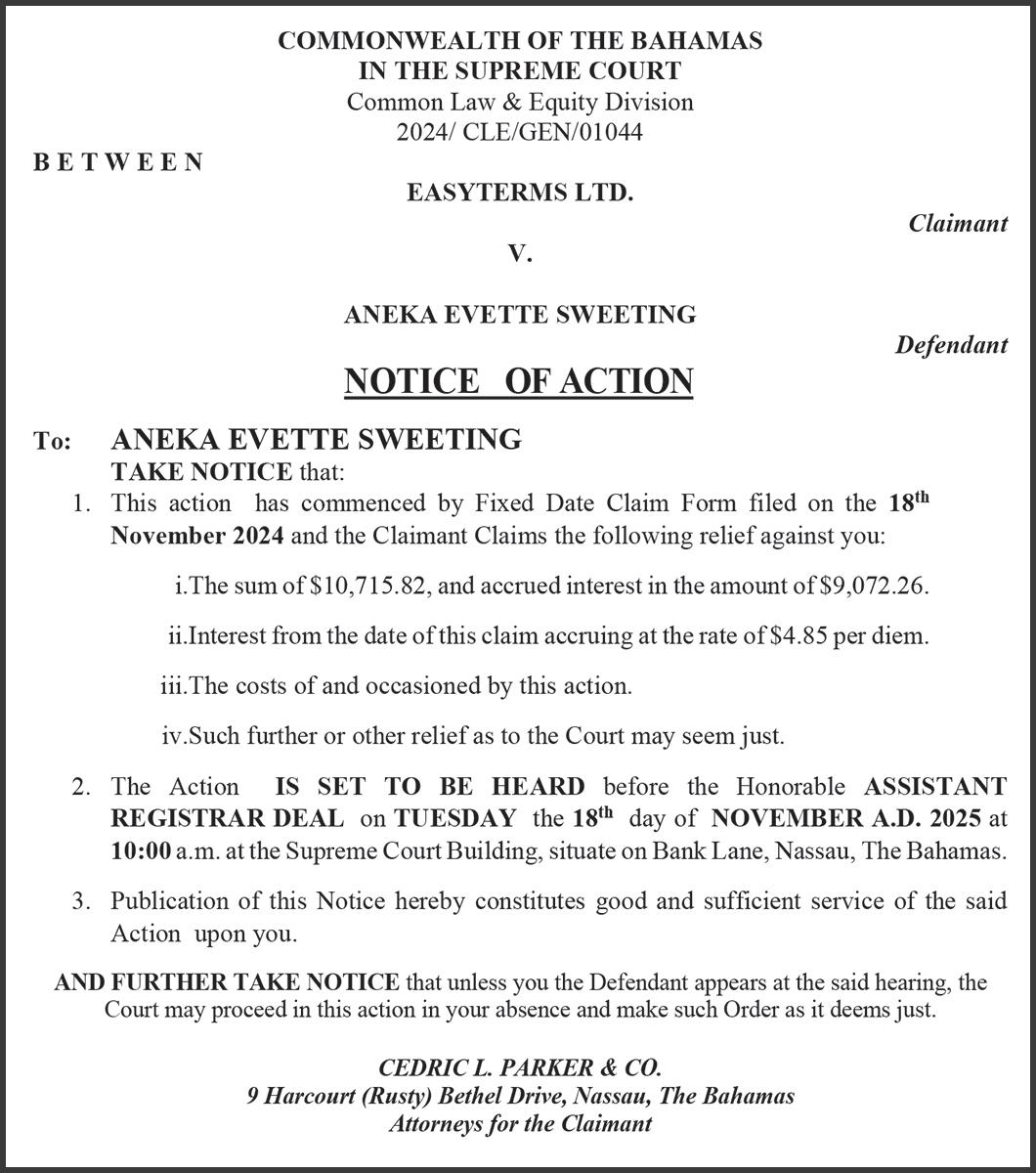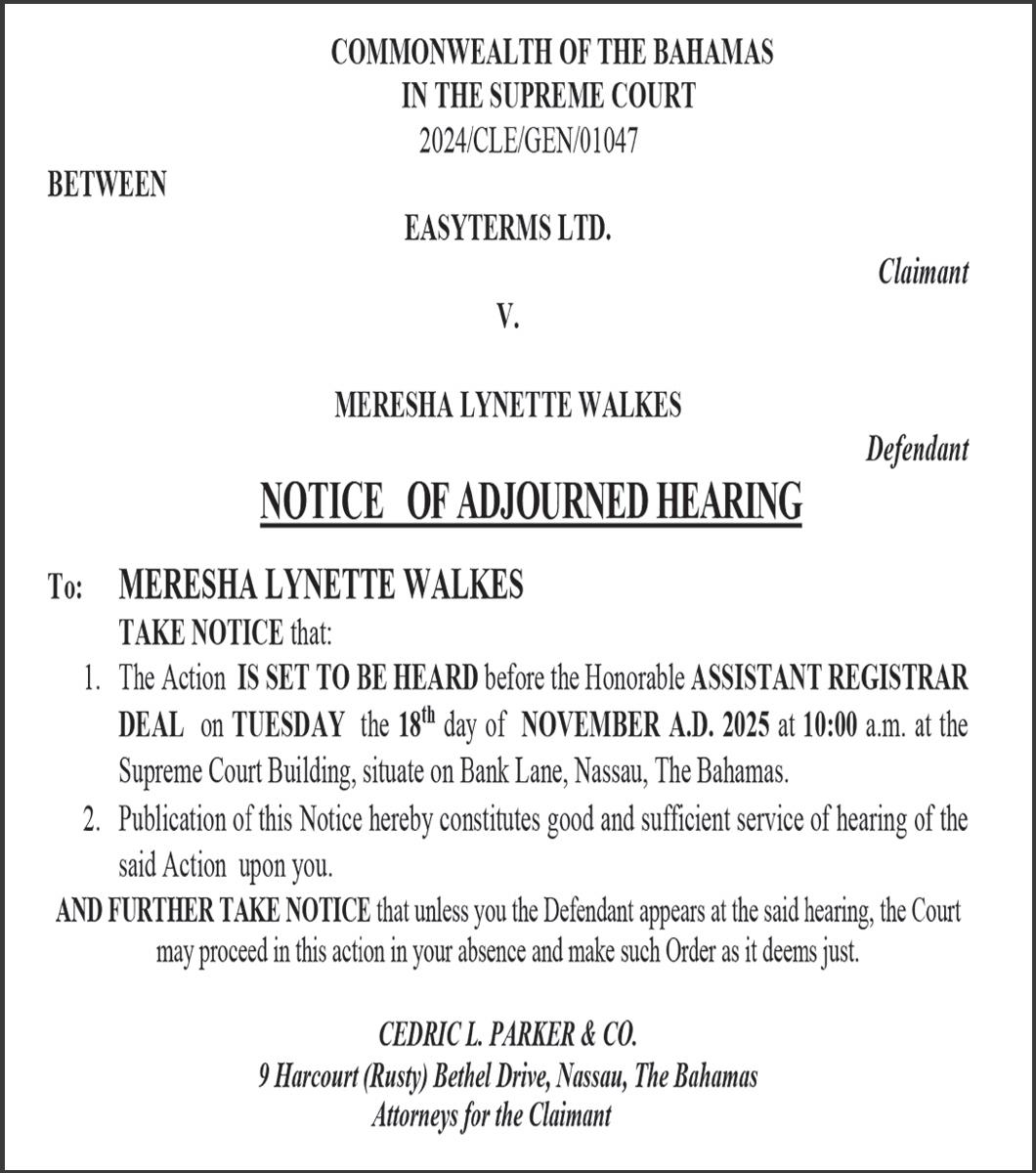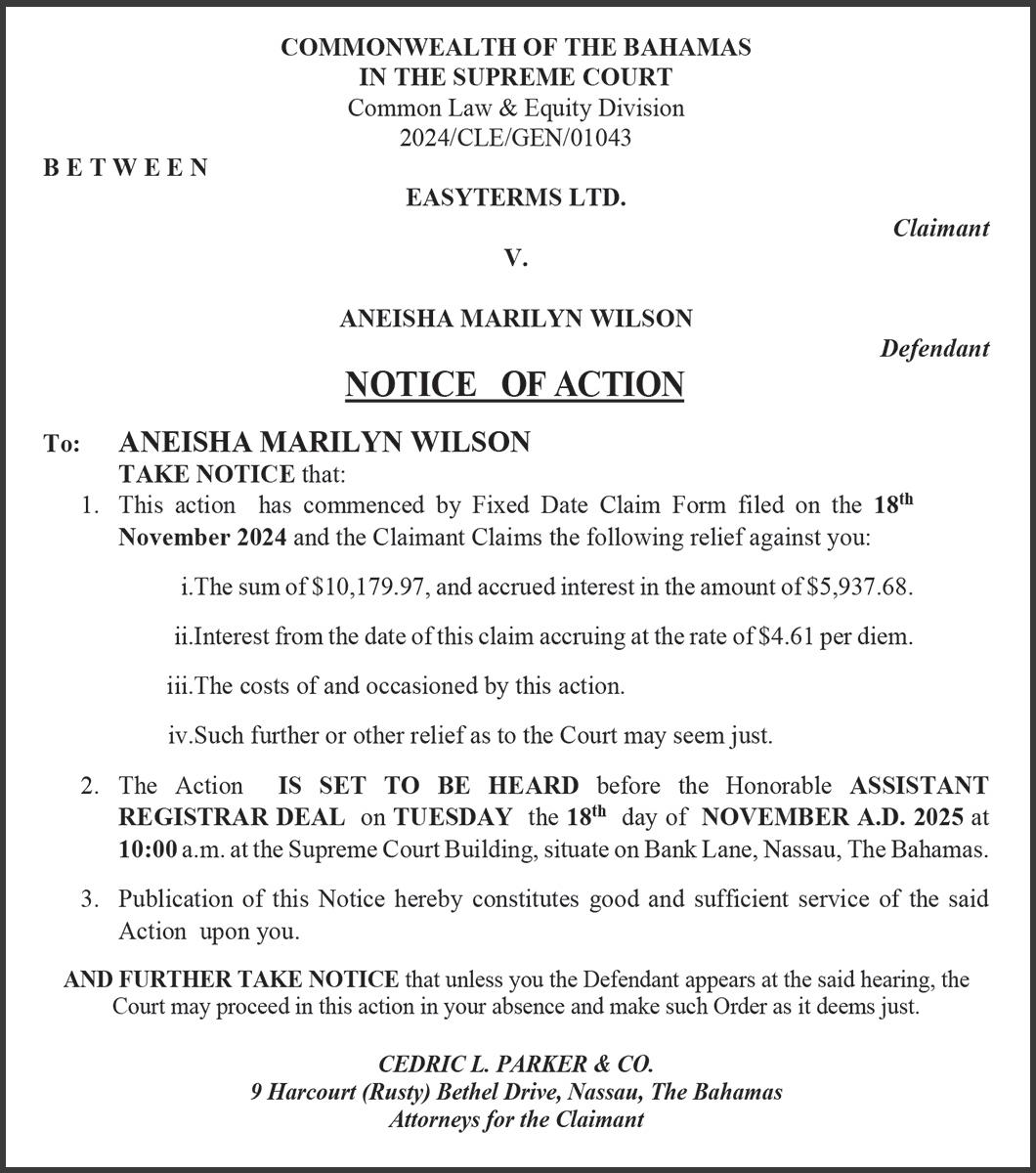










By JADE RUSSELL Tribune Staff Reporter jrussell@tribunemedia.net
ISLAND Luck CEO Sebas Bastian says he is stepping aside from his gaming business as he pursues the Progressive Liberal Party’s (PLP) nomination for Fort Charlotte, declaring he is “ready to serve” as the party prepares its slate of candidates for the next general election.
His comments came after he was interviewed by the PLP’s Candidates Committee at the party’s headquarters yesterday. Mr Bastian arrived to cheers from supporters gathered outside the PLP headquarters, some shouting, “Sebas is the man for Fort Charlotte,” as he made his way inside. After his interview, Mr Bastian said he was
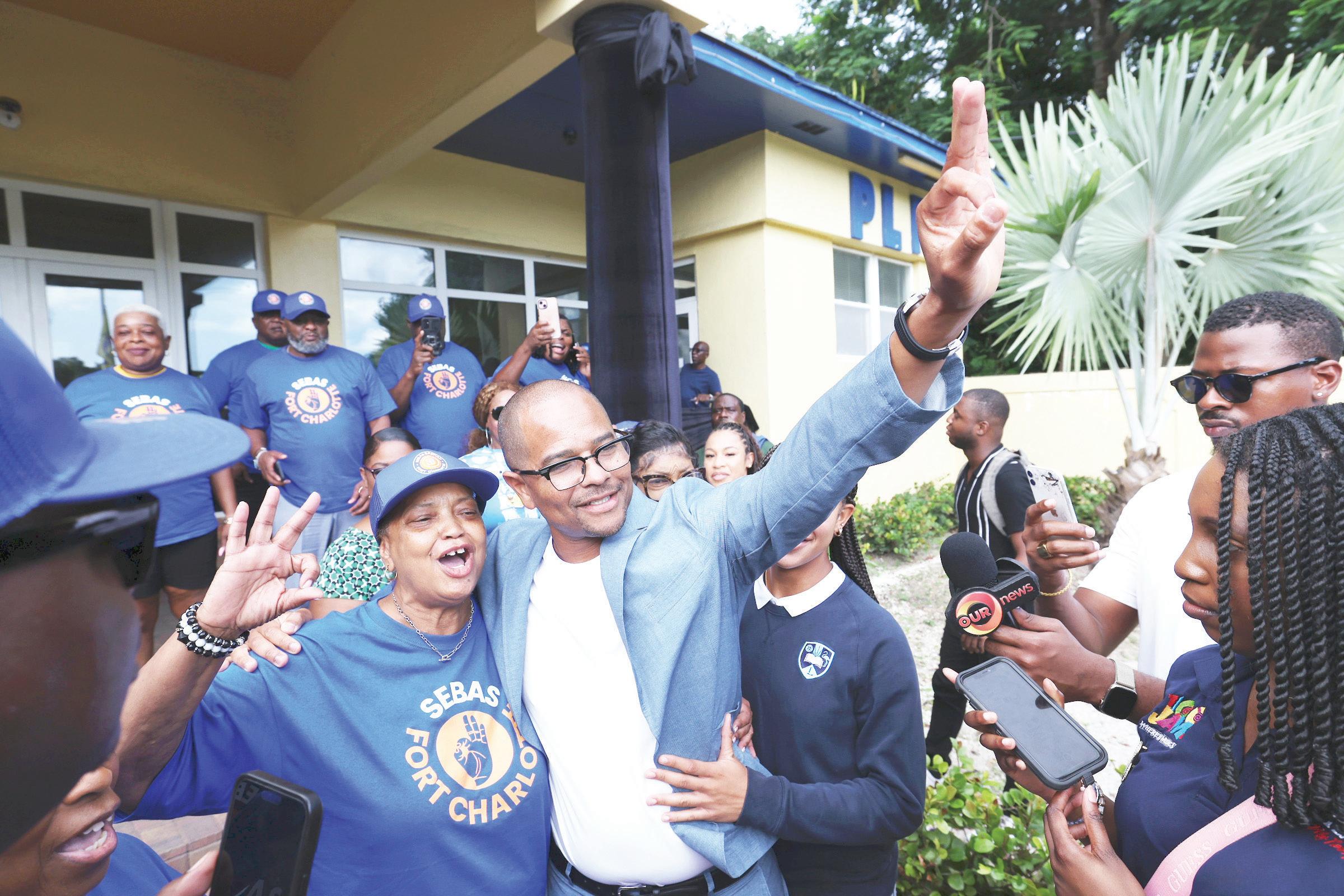
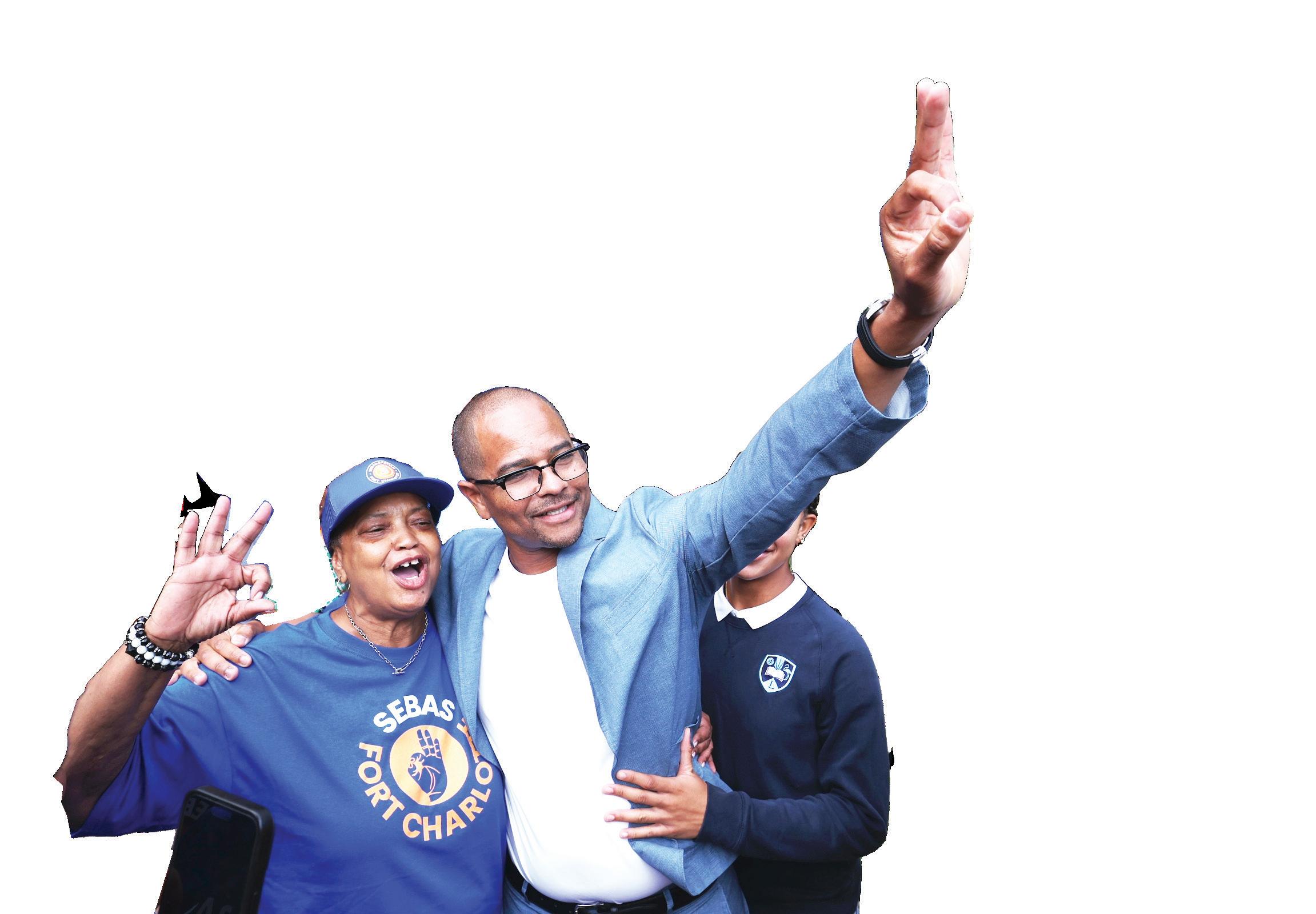
By EARYEL BOWLEG
Tribune Staff Reporter ebowleg@tribunemedia.net
THE manager of the Cricket Club Restaurant and Pub says business has fallen by about ten percent after a wave of social media allegations accusing the long-standing Nassau establishment of mistreating staff — claims that labour inspectors have so far found no evidence to support.
Manager Dominique Smith said the backlash has hurt the restaurant’s reputation, even though it has also drawn new customers curious to see the business for themselves.
“A lot of people have questioned our reputation,” she said yesterday.
“They have questioned our

Church group to protest over Pride Week march
By LYNAIRE MUNNINGS Tribune Staff Reporter lmunnings@tribunemedia.net
TENSIONS are mounting ahead of tomorrow’s Pride Week march, as a church group plans a counter-protest on the same day at the University of The Bahamas, raising fears of confrontation.
The “Human Rights
March,” organised by members of the LGBTQ community and allied groups, is scheduled as part of Pride Week activities. Organisers say the event is about equality and visibility, not sexual expression. But Churches United in Christ, led by Prophetess Pastor Dr Patrice Smith,
By NEIL HARTNELL Tribune Business Editor nhartnell@tribunemedia.net
A N oil explorer is now threatening to sue the Government over the four-and-a-half year delay it has endured in waiting for its Bahamian licences to be renewed.
By NEIL HARTNELL Tribune Business Editor nhartnell@tribunemedia.net
NEARBY residents yesterday described as “a foregone conclusion” the swift preliminary approval granted to New Providence’s new hospital by the Town Planning Committee. Despite homeowners in nearby communities voicing fears that flooding, noise pollution, increased traffic and a higher risk
of crime made the Perpall Tract site inappropriate for the $285.25m hospital, the planning regulator yesterday announced it has granted the preliminary go-ahead within just three days of the public consultation and hearing.
“We were pretty certain they were going to be in favour of it,” Barbara Hepburn, president of the Grove West Homeowners Association, said.
Challenger Energy Group, the former Bahamas Petroleum Company (BPC), this week warned it is exploring “legal remedies available against the Government of The Bahamas” after failing to obtain an answer over whether the licence renewal application will be granted.

FULL STORY - SEE BUSINESS

confident in his ability to balance his business interests with public service. “I have over 20 companies, and I’m only the CEO of one,” he said. “I didn’t build my businesses by myself. I have more than competent teams to ensure continuity in those businesses. I’m here to serve. I have a higher purpose now, and I’m going to focus on that. So, I’m not worried about that.”
When asked directly if he would step down from Island Luck, he replied: “Absolutely. That’s a done deal. Without politics, I was stepping down.”
There has long been speculation about how Mr Bastian’s gaming interests could affect his political future, and some will interpret his decision as an effort to improve his chances of securing a Cabinet position if the PLP wins again. Under Section 25 of the Gaming Act, Cabinet ministers, their spouses, and immediate relatives are prohibited from holding gaming licences or having any ownership or financial interest in a licensed operation. Prime Minister Philip Davis has said the government will not amend
the existing law barring Cabinet ministers and their families from holding interests in the gaming industry.
Mr Bastian described his interview with the committee as organised and transparent, saying members “didn’t spare anything.” He said he was not given a timeline for the final decision but was assured it would come soon.
Fort Charlotte MP Alfred Sears announced in May that he will not seek re-election. Yesterday, Eyewitness News reported that Mr Sears has endorsed him as his successor.
Mr Bastian said his priorities for the constituency include creating a community impact centre, promoting affordable housing, and tackling the high cost of living.
Several Fort Charlotte residents expressed strong support for him, citing his business and leadership record as evidence that he can deliver for the community. Branch officer
Felicity Rolle said she believes he has the discipline and drive to win the seat and strengthen the PLP’s national standing, while longtime supporter Ellison Justen said his success creating jobs and opportunities proves he can help families in need.
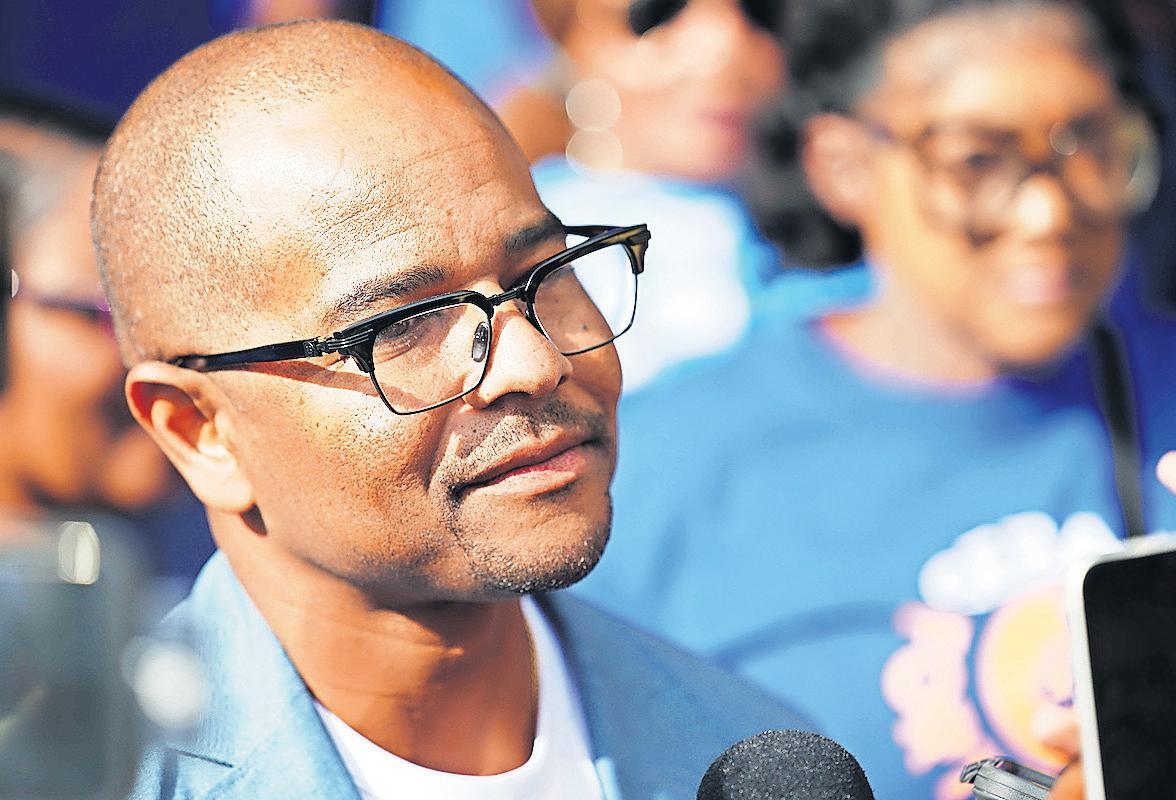
Luck CEO
ters yesterday.
Dolores “Red” Archer Adderley, chair of the Fort Charlotte branch, said most branch executives voted to recommend Mr Bastian for the
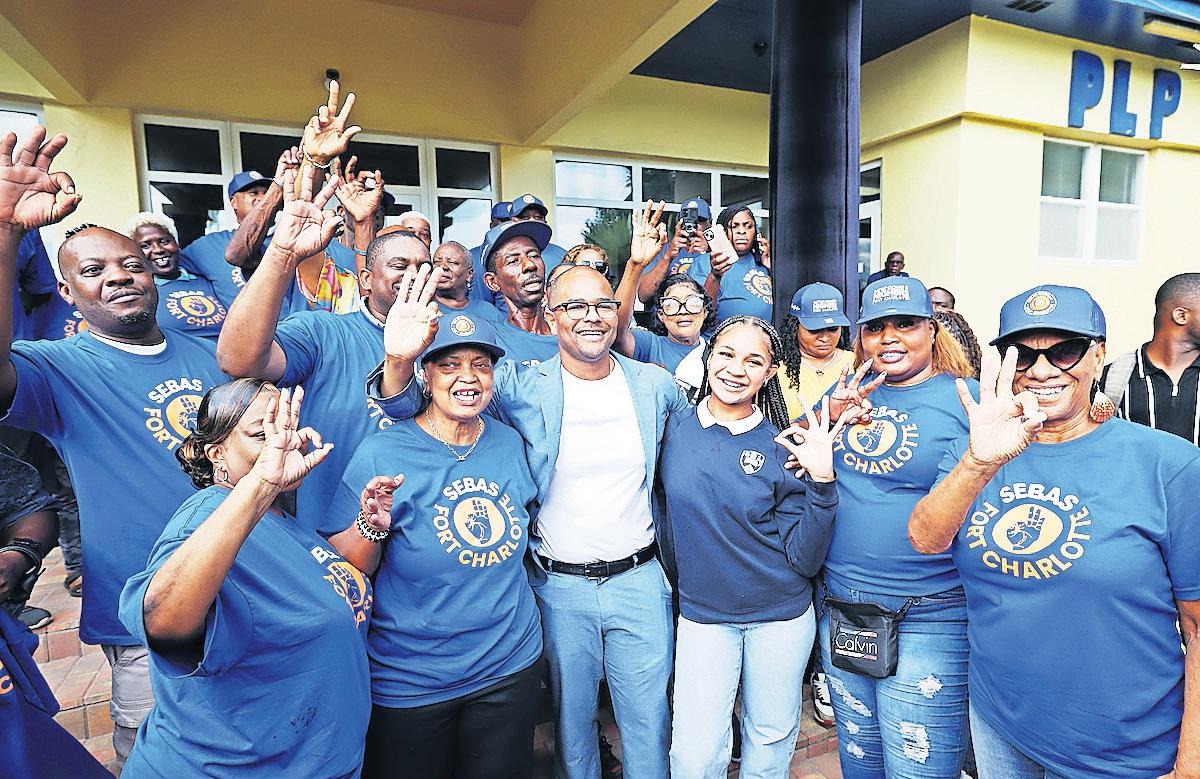
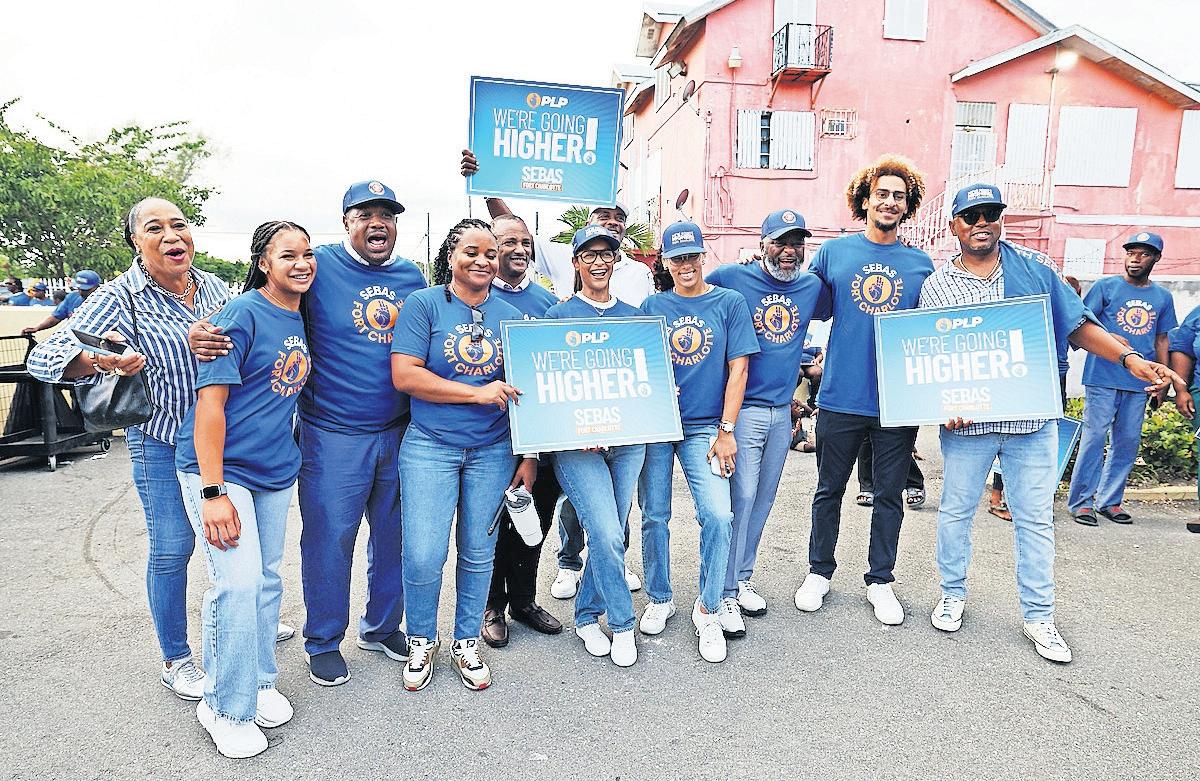
nomination this week.
“We didn’t have the opportunity to really have an interview with him,” she said, “but we chose him based on his
knowledge, his participation in the country, his interest in social events, and his interest in caring for people.” She praised his philanthropy, pointing to his Island Cares initiative, which she said has “always given back to the community of Nassau and The Bahamas.”
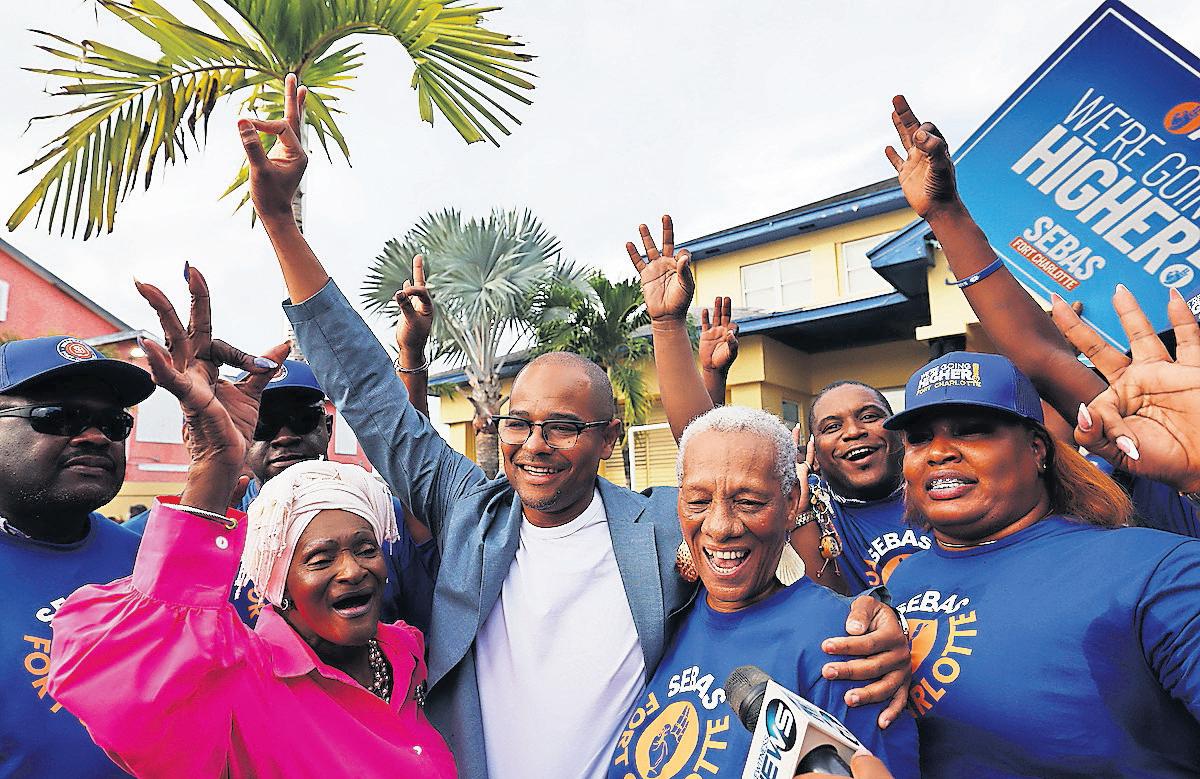


By EARYEL BOWLEG Tribune Staff Reporter ebowleg@tribunemedia.net
A MOTHER of two was found hanging yesterday morning at a Rasta Camp off Fire Trail Road, becoming the country’s 11th suspected suicide for the year, according to The Tribune’ s records.
Police said the body of a 34-year-old woman was discovered in an outdoor shed at the community, where residents gathered in shock and disbelief as officers investigated the scene.
Rastafarian leader Priest Richmond McKinney identified the woman as Kettlyne Ferdinand, describing her as a longtime member of the community who had
been “unstable” in recent years following a trip to Haiti.
“When she came back, she was moving rather strange, but not in a violent way, but she was saying some off things and moved a bit different,” he said. “So persons face whatever take place in Haiti, we don’t know, but when she came back, she was different. But during all that, she was still active.”
Mr McKinney said Ferdinand had been part of the church for nearly two decades and once helped teach younger members about Rastafarian culture and the principles from a woman’s perspective.
“She seemed very active within our community over the years,
but after she get the situation, she wasn’t so active,” he said. “Everybody feel safe around her, so it isn’t no problem.”
He added that her death was unexpected, as she had not shown any signs of suicidal behaviour.
A somber mood hung over the community as residents expressed sadness and confusion over her death. Mr McKinney said the group is awaiting a formal police report but does not suspect foul play.
Ms Ferdinand is believed to have left behind two children, said to be between 16 and 18 years old.
In 2024, there were eight suicides, up from six in 2023.
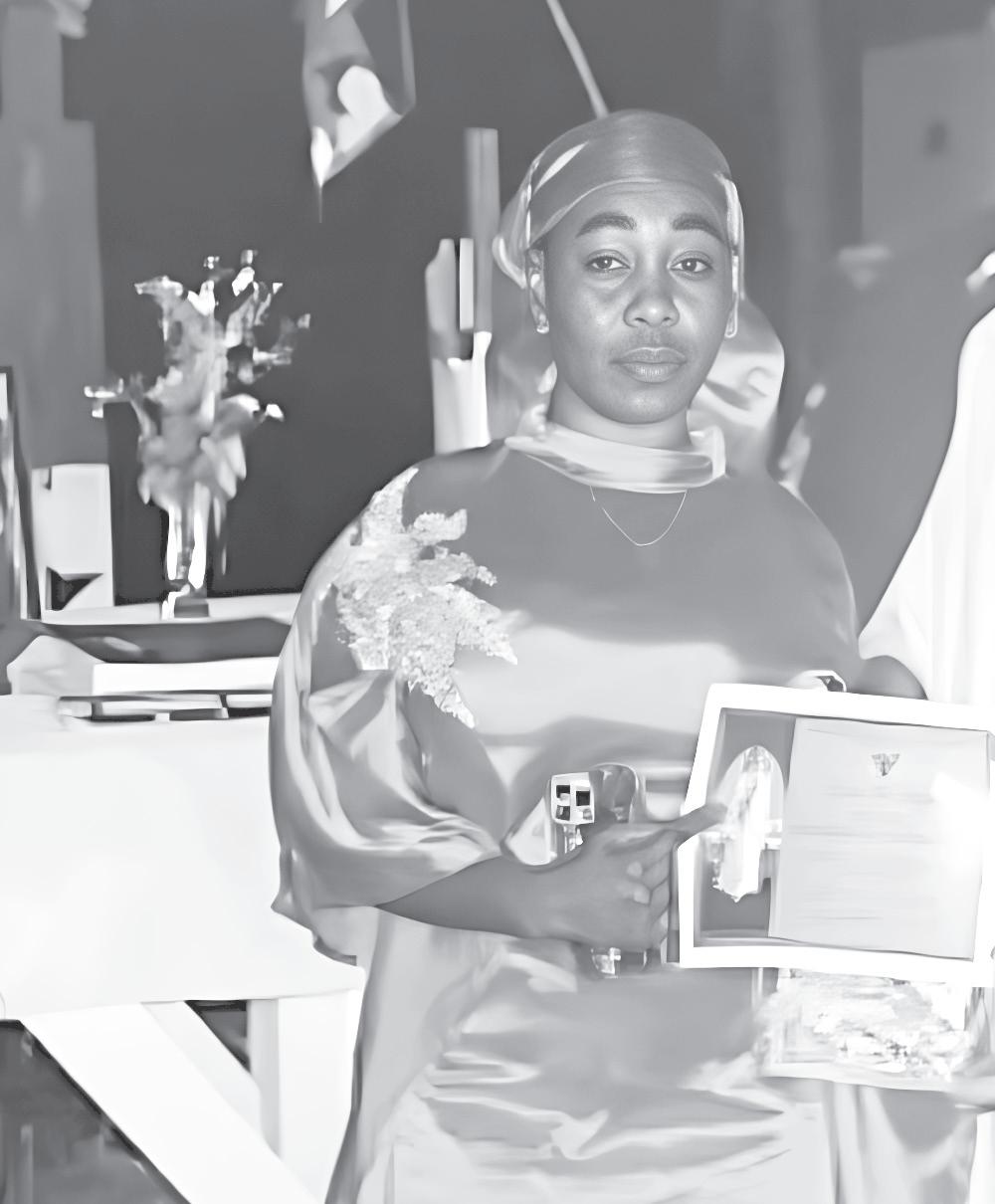
By DENISE MAYCOCK Tribune Freeport Reporter
NEARLY five months after 31-year-old Althia Lashanda Mitchell was killed in a collision involving a police vehicle, her family says they are still waiting for closure — even as the case has now been sent to the Coroner’s Court for review.
Chief Superintendent Christopher Farquharson, officer-in-charge of the Traffic Division, confirmed yesterday that police have completed their investigation and submitted the file to the Coroner’s Court, which will decide whether a hearing is necessary.
“It doesn’t necessarily have to be a hearing,” he said. “The Coroner may review the file and determine that there is no need for one.”
Ms Mitchell, of Hanna Hill, Eight Mile Rock, died on May 10 when the vehicle she was driving collided with a marked police car sometime around 3pm. At the time, police and first responders were heading to a reported drowning in the area. She was taken to the Rand Memorial Hospital, where she later died of her injuries.
Police said the crash occurred along Queen’s Highway and resulted in severe damage to both vehicles.

Her sister, Michelle Mitchell, said the family has been left in limbo for months with no official update until now.
“He said that it’s still an ongoing investigation.
There is nothing as yet,” she said, referring to earlier conversations with Chief Supt Farquharson.
“They were collecting paperwork from numerous other people, and we haven’t gotten any updates since. Everything seems to be at a standstill. We’re still waiting, and time is just climbing. We are just sitting here at a loss, like what’s the next move?

“We are still waiting for someone to reach out to us to say what the deal is,” she said.
Ms Mitchell said the family continues to make calls to police for updates but gets little information in return.
“Every now and again, we go and probably
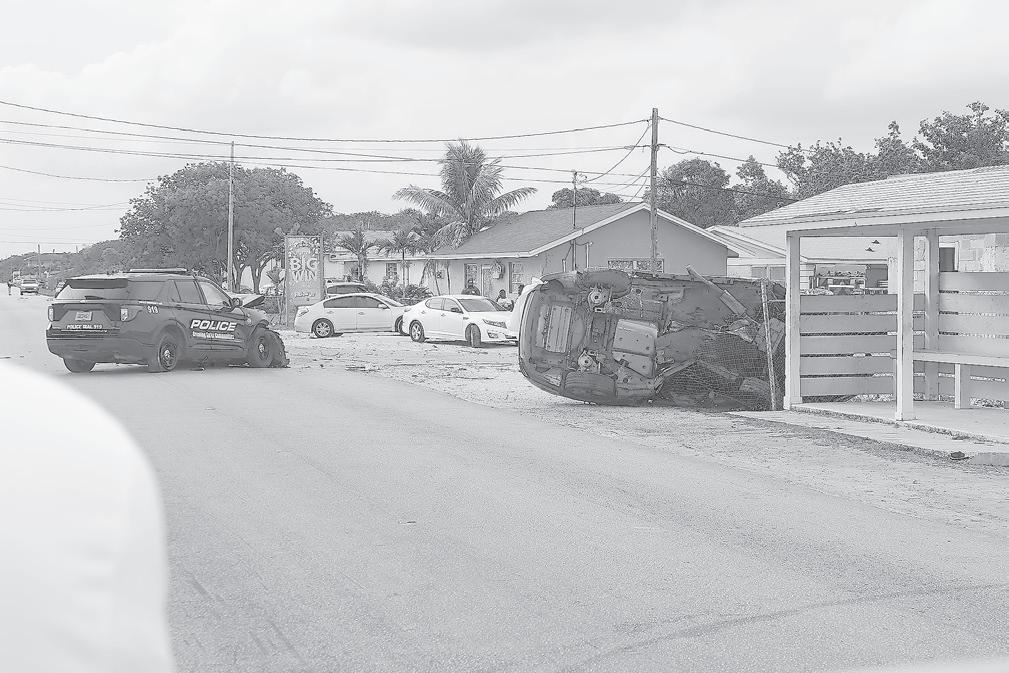

query or ask questions, but at this point, we are just waiting for them to finish up whatever they say that they were waiting on so we could have some answers to satisfy our need,” she said. “For every question we ask, it’s a question for a question—no answer.”
“We just want closure,” she said.
Althia was laid to rest on June 7 at Mt Zion Baptist Church in Jones Town, Eight Mile Rock.
Describing Althia as an ambitious young entrepreneur who ran her own spa business in Eight Mile Rock, Ms Mitchell said the family is heartbroken that months later, they still do not know who was at fault or what happens next.

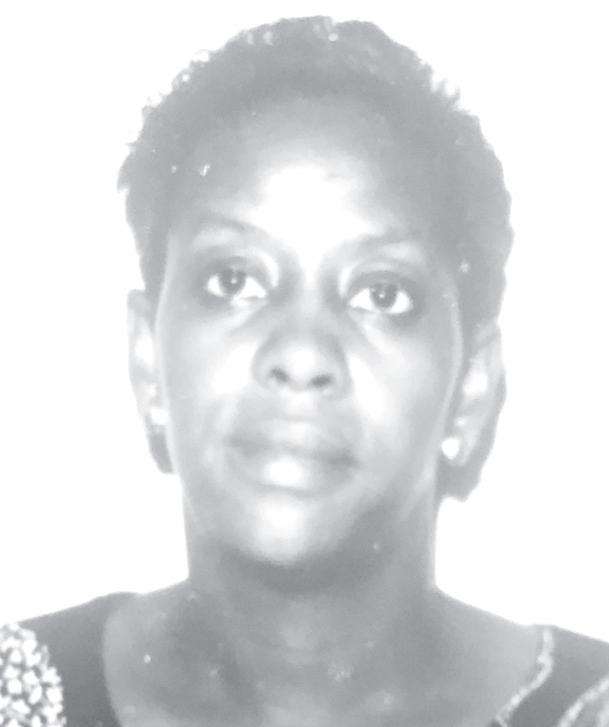
a resident of #13 Stew Fish Drive, will be held at Bahamas Harvest Church, John F. Kennedy Drive, on Thursday, October 16, 2025 at 10:00 a.m. Officiating will be Pastor Hervis Bain III. Cremation follows
Left to cherish her memories are her husband: Blaze; sons: Chazwick, Blaze Jr., and Micahiah; daughter: Vonnaze; grand daughter: Nova Johnson; daughter-in-law: Yafet Johnson; brother-in-law: Clevland Godard; Mother: Magalene Sargent; brothers: Livingston and Stephen Sargent; sisters: Gaynell Sargent, Shenika Demeritte, and Karen Godard; along with numerous nieces and nephews and a host of other relatives who cherished her deeply
She now joins in eternal rest with her father Livingston Sargent; brother Anthony Sargent; and Grandmother Tita.
Friends may pay their last respects at Demeritte’s Funeral Home, Market Street, from 11-5:00 p.m. on Wednesday & on Thursday at the church from 9:00 a.m. until service time
says it will also protest that day to “stand up for what the Bible says.”
“I am not bashing anybody,” she said. “I just feel like the world needs to know the truth. It’s time for the church to come out of the four walls. We’ve been silent too long. We’ve allowed so many things to pass, and now it’s in our face. And so, as the church, we have to stand up. We have to say something. We have to be present.”
Her comments reflect the continued rift in The Bahamas, where expressions of LGBTQ visibility often trigger strong pushback from religious groups and others.
Activists say this intolerance underscores why Pride Week — and its public march — remain vital.
Victor Rollins, founder of SASH Bahamas and one of the earliest organisers of Pride events, said yesterday that misconceptions about the march persist because of imported stereotypes and misinformation. “Firstly, I want to say it’s called a Human Rights March, not a gay pride march,” he said. “You have different people, different groups, all joining in. Other people come and call it a gay pride march.”
He said those expecting flamboyant displays will be surprised. “People
don’t do what they do in their bedrooms in the streets,” he said. “They’re going to see persons who believe in human rights — women’s groups, groups defending the rights of children being molested, and others. They’ll be in for a shock because it’s not just ‘gay people’ — it’s a human rights march.”
Gennaro Bullard, executive director of the Bahamas Organisation of LGBTI Affairs and a member of the Pride planning committee, said the movement has evolved far beyond its early years. “The needs that our service and pride is dictated by the climate that exists at the moment,” he said. “Especially with the rise of the far-right movement in different geopolitical spaces, funding for projects that service the LGBTQ community, whether human rights or healthcare, has been jeopardised. These events are about showing that we are here: your brothers, sisters, neighbours.”
Pride Week traces its roots to 2001, when local organisers first held small social events and health fairs. A larger Pride Weekend in 2014 sparked fierce backlash after religious leaders condemned it as immoral, forcing organisers into the international spotlight and setting the tone for future debates.
Since 2020, the event has been revived annually
in October, aligning with National Heroes Month and focusing on education, art, health, and inclusion.
“To be a thriving member of the LGBTQ community, you are a hero in itself,” Mr Bullard said. The week’s sessions, he added, are designed to counter misinformation that feeds hostility. “Because of a lack of exposure, people are just ignorant,” he said. “If you’re only exposed to certain shows in California or New York, you’ll assume that’s what Pride looks like here. But the context is different. Our needs are different.”
He also addressed the planned counter-protest, saying the church group has every right to demonstrate just as LGBTQ Bahamians have the right to march. “It was purposeful, obviously, by the pronunciations that were made on different shows. But they have the right to do so, because it’s a testament to what every human being — heterosexual, homosexual, Christian, non-Christian — has the human right to do,” he said.
Although Pride has never received formal political endorsement, organisers say government agencies, particularly the Ministry of Health, have partnered in areas such as HIV prevention and public education. “It would be unfair to say the government gives political
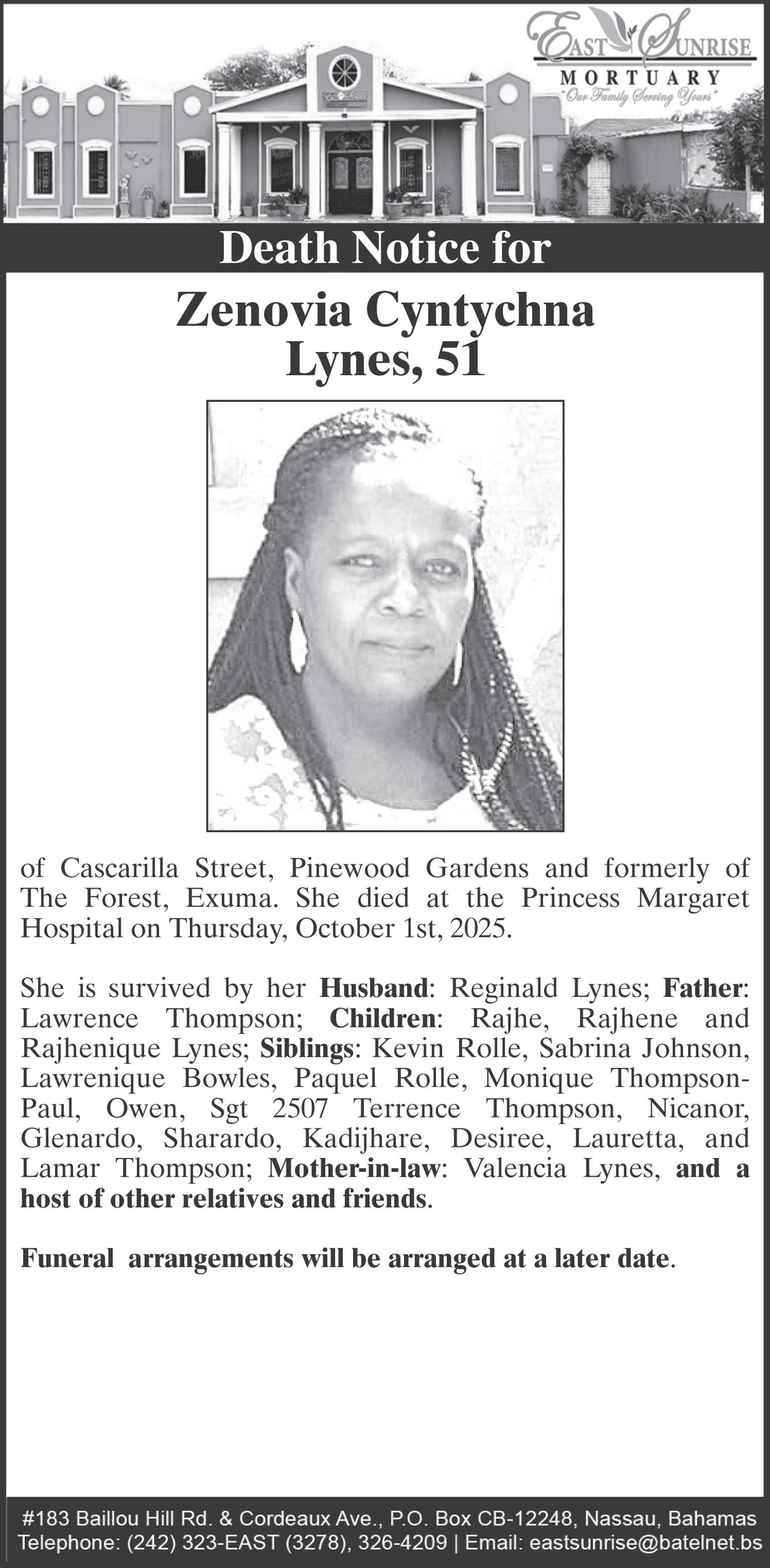

PROPHETESS
support,” Mr Bullard said. “But they have facilitated discussions.”
For organisers like Mr Rollins and Mr Bullard, the stakes are deeply personal. Mr Rollins
said early Pride efforts were acts of courage in a climate of hostility. Mr Bullard recalled growing up believing he was alone. “I grew up thinking I was the only gay person
in The Bahamas,” he said. “I had to pretend I wasn’t gay to be Bahamian. It led to depression and anxiety. Events like Pride are necessary to let people know they’re not alone.”


will be held on Sunday, October 12, 2025, 12:00 noon at Berea SeventhDay Adventist Church. Offciating will be Pastor Peter Joseph assisted by Pastor Melvin Lewis. Interment will follow in the Southern Cemetery, Spikenard & Cowpen Roads, New Providence, Bahamas.
Left to cherish her precious memories are her husband: Rolex St. Fleur; children: Sgt. Ahmad Peters, Ashley Alleyne, Alexus St. Fleur, Ashea Alleyne and Ayva Alleyne; mother: Tairy Alexandre Bien-Aime; step father: Jean Claude Bien-Aime; grandchildren: Jermaine Peters, Aliyah Frazer, Van Alexander Johnson and Essynce Smith; brothers: Nixon Lazard, Niclosse Alexandre Lazard, Rosny Philistine, Ferdinand Philistine, and Luckner Pierre; step brothers: Josie Belfort, Marc Belfort, Renay Belfort, Narado Duverse, Yvon Pierre, Ochenel Duverse, Nickelange Duverse; sisters: Adeline Sweeting, Elizabeth Alexandre, Vivian Philistine and Clesya Philistine; step sisters: Nicole Duverse, Colleen Denis, and Gertrude Denis; aunt & uncle: Mary Alleyne and Johnny Jean Louis; nieces & nephews: Sharlincia John, Daranique Sweeting, Crystal Sweeting, Kasey Jean, Norah Lazard, Leroy Sweeting, Shantangelo Sweeting, Rajah Jean, Emmanuel “Jafari” Jean, Nixon Lazard Jr., Niclosse Alexandre Jr., Nicholas Lazard, Landiny and Woodley Desravine, Rokertha, Ronnysha, Rokelle and Rowlia Jospeh; cousins: Tragent Alleyne, Wilson Nelson, Lashann & Treyvon Alleyne, Gilbert Joseph, Oberlien, Natasha, Fransia, Olinz, Shiland Blanc; grand-nieces & nephews: Edwin and Edwinique John, Deshanique and Shantonio Clarke, Vaughnique Smith, Cleran Charite, Chanell, Chris’ton and Carmel McCoy, Kamryn Carey; she will also be remembered with love by a host of other relatives and friends including: Superintendent Audley Peters & Family, Margo Munroe & Family, Lashano Smith, Van Johnson, Charisma Thompson, Corrinda, Diedre, Jennifer, Rachel Toote, The GHS Class of 1993, Christine Lazard, Sylvani Alexandre, Guelita Monestime, Mella Joseph, Inspector Jacqueline Jones & Family, the dedicated Staff of Shell Bahamas Ltd., the Little Switzerland Staff and Family, Germitha Polycarpe & Family, Mr. & Mrs. Carey, Louisiane Jean & Family, Antonine Monestime & Family, Carolyn Bonimy & Family, Garicka Henningham & Family, the entire Pierre Family, Janet Miranda, Roseline Joseph, Marlene Cinor & Family, Mrs. Solomon & Family, Ronald, John Robert, Sherline Joseph & Family, The Calvary Baptist Church Family, the CC Sweeting Class of 1994
Relatives & Friends may pay their last respects at Legacy Memorial Mortuary, #85 Mount Royal Avenue, Mount Royal Plaza, New Providence on Friday, October 10, 2025 from 10:00am-5:00pm and at the church on Sunday from 11:00am until service time.
By KEILE CAMPBELL Tribune Staff Reporter kcampell@tribunemedia.net
PHARMACISTS are pushing back against claims that women face limited choices in menstrual products, insisting that nearly any item can be sourced upon request.
Their response follows
Equality Bahamas president Alicia Wallace’s recent call for government action to “address the limited choice” of menstrual products in the country by investing in local manufacturing and ensuring items are sold tax-free in stores and pharmacies. Ms Wallace argued that newer alternatives to traditional pads and tampons—such as menstrual cups, discs, and period underwear—are not widely available, and that styles, sizes, and materials remain restricted.
Pharmacists, however, say the issue is less about access and more about demand. They said most pharmacies will order or refer customers
for any product not currently in stock, and that limited shelf variety often reflects low sales volume rather than unwillingness to import.
Rainya Pinder, head pharmacist at Smitty’s Pharmacy, said menstrual cups are routinely stocked and “sell out a lot,” but acknowledged that carrying full size ranges of period underwear is challenging for smaller stores. “Space is a real issue, and we won’t tie up cash in slowmoving size ranges,” she said. “That said, if someone requests period underwear or discs, we’ll take the number, order it in, and let the customer know when it arrives.”
Ms Pinder added that local health patterns also shape what pharmacies keep on hand. “We see a lot of women with heavy bleeding locally. For them, period underwear alone may not be practical. A cup plus a pad tends to work better,” she said.
She noted that the
decision to stock certain items comes down to balancing storage, cost, and demand. “When we first opened, we carried a full range of baby foods, thinking they’d sell regularly,” she said. “But for almost three years, it just sat on the shelves and expired. We eventually had to stop stocking it. That’s exactly what happens with certain health products. Until people start asking for them consistently, it’s better to bring them in as needed.”
Philip Gray, a pharmacist with more than 30 years’ experience and owner of Quality Care Pharmacy on Paradise Island, said pharmacists routinely help customers find what they need, whether it’s a product, specialist referral, or medical guidance.
“As pharmacists, our scope is a lot broader than just handing over products,” he said. “We’re trained to consult with people when they’re challenged with health issues, whether that’s

heavy bleeding, endometriosis, fibroids, or menopause. Sometimes the right answer isn’t just a product, it’s helping them find the right specialist or treatment.”
He added that there are already local distributors offering organic and alternative menstrual products, and that the claim of a shortage surprised many in the industry.
“When that article came out, it came up right away in our pharmacy owners’ group chat,” he said. “People were asking, ‘Where is this shortage they’re talking about?’ Because as far as we’re aware, there’s no widespread issue. If something isn’t in stock, we can bring it in within days.”
He encouraged women to approach their pharmacists directly for help sourcing any menstrual product, traditional or modern. “It isn’t that it isn’t available,” he said. “Sometimes people just don’t know where to go or who to ask. That’s why I
always tell my customers: your pharmacist is your most accessible member of the healthcare team. Use that resource.”
Leonard Stirrup, a former public health pharmacist who now operates a private pharmacy in Exuma, said the perception of limited variety often stems from confusion between public and private sector availability.
“A lot of times when people are complaining, it’s coming from the public sector,” he said. “The government can’t buy every brand or every product. The public system works on a formulary, a list of essential medicines and supplies that it can afford to purchase in bulk for the whole population.”
He said private pharmacies, on the other hand, can cater to niche requests through wholesalers. “If there’s demand, wholesalers will bring it in,” he said. “It’s really a question of whether customers are willing to pay for those alternatives. Once there’s interest and people are asking, the supply follows.” He added that calls for greater variety often overlook cost realities. “People have to be realistic,” he said. “If you have money for a Volkswagen, you can’t demand a Mercedes and expect the government to pick up the tab. In the public sector, they provide what’s essential. In the private sector, if you want something more specialised, it’s available but it comes at a cost.” Mr Stirrup said affordability and awareness, not availability, remain the main challenges. “Even in the United States or Canada, not every public programme covers every product,” he said. “It’s no different here. If someone wants menstrual cups or period underwear, any pharmacist can order it in. The question is whether the customer is prepared to buy it.”
By PAVEL BAILEY Tribune Staff Reporter pbailey@tribunemedia.net
TWO Haitian men were remanded to prison yesterday after being accused of involvement in a $7.8 million cocaine bust on Cat Island last week. Prosecutors allege that Joel Alfred, also known as “Alfred Joel,” 42, and Fredson Frederic, also known as “Fredric
Fredson,” 37, were found hiding in bushes in McQueen, Cat Island, with 920 pounds of cocaine around 6pm on October 4. The drugs seized reportedly have an estimated street value of $7,810,000. Both men pleaded not guilty to possession of dangerous drugs with intent to supply and conspiracy to possess dangerous drugs with intent to supply when they appeared before
Senior Magistrate Raquel Whyms. Sergeant 2257 Wilkinson, the prosecutor, objected to bail, arguing that the defendants were flight risks due to their lack of legal status in The Bahamas.
The magistrate agreed, remanding both men to the Bahamas Department of Correctional Services until their trial, which is set for December 5, 2026.
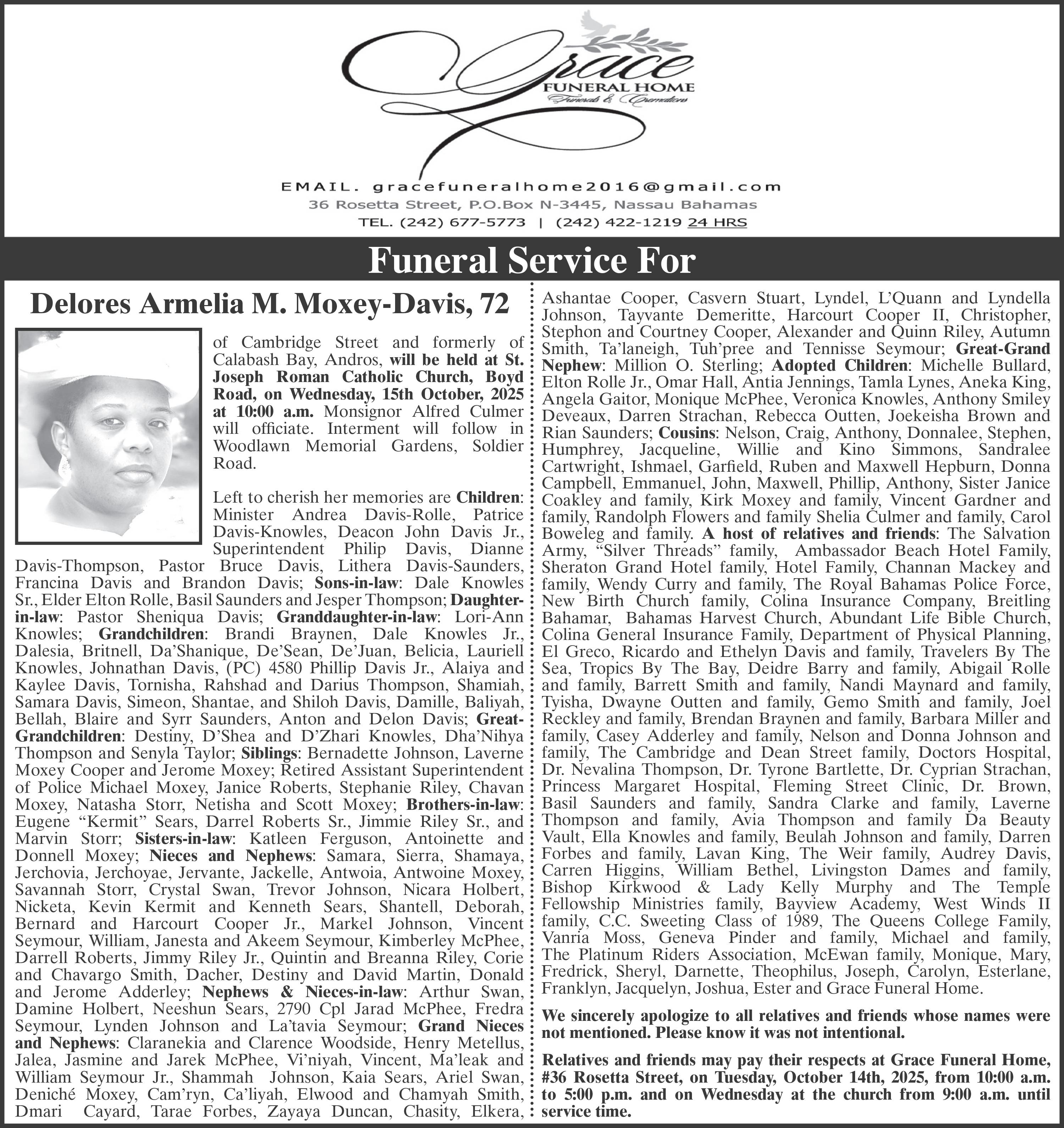
NULLIUS ADDICTUS JURARE IN VERBA MAGISTRI
“Being Bound to Swear to The Dogmas of No Master”
LEON E. H. DUPUCH
Publisher/Editor 1903-1914
SIR ETIENNE DUPUCH, Kt., O.B.E., K.M., K.C.S.G., (Hon.) LL.D., D.Litt .
Publisher/Editor 1919-1972
Contributing Editor 1972-1991
RT HON EILEEN DUPUCH CARRON, C.M.G., M.S., B.A., LL.B.
Publisher/Editor 1972-
Published daily Monday to Friday
Shirley & Deveaux Streets, Nassau, Bahamas N3207
TELEPHONES
News & General Information
EDITOR, The Tribune.
THE game inside the Progressive Liberal Party has changed. And if Chester Cooper is sleeping well tonight, he should not be.
by who the crowd believes is theirs.
(242) 502-2350
Advertising Manager (242) 502-2394
Circulation Department (242) 502-2386
Nassau fax (242) 328-2398
Freeport, Grand Bahama (242)-352-6608
Freeport fax (242) 352-9348
WEBSITE, TWITTER & FACEBOOK
www.tribune242.com

@tribune242 tribune news network

DESPITE consistent opposition from Bahamians, an oil explorer has for years been trying to determine whether there is black gold in our waters.
The crucial concern from many opponents is making sure that the oil does not end up in our waters – no spills, no slicks, no ruined environment.
Originally known as Bahamas Petroleum Company, then becoming Challenger Energy Group, the explorer is now up for sale.
A proposed £45m deal will see it bought up by Sintana Energy. That is a company headquartered in Canada, with oil exploration rights in Namibia and Angola.
It does not likely matter much to opponents which flag now flies over the company name, the insistence on protecting our shores will remain the same.
To throw an extra spanner into the company’s relationship with The Bahamas, it is now threatening to sue the government for a four-and-a-half year delay in renewing licences.
It is said to be exploring “legal remedies”.
One would think that the prospect of a company without licences and threatening a lawsuit would not make it an appetising purchase, but Sintana seems to think otherwise.
So who wants this foreign oil explorer here anyway?
Not the environmentalists. Joseph Darville yesterday called for the prime minister to continue resisting any pressure to permit exploratory drilling.
Casuarina McKinney-Lambert meanwhile called the prospect of the legal action odd considering the company still owes the government more than half a million dollars in unpaid fees from previous exploration periods.
Mrs McKinney-Lambert went further, saying: “The direction that The
Bahamas needs to go is a total ban on oil drilling.”
Mr Darville meanwhile pointed out Prime Minister Philip Davis’ environmental credibility – from his trips to conferences around the world touting the importance of reducing carbon footprints, and tackling climate change.
Mr Davis has worn two hats in this particular debate, however. His law firm represented the explorer at one time.
This seems like one case where local concerns should trump foreign investment – if indeed that should not always be the case.
For years, the possibility of this explorer continuing its work has haunted those concerned about the environment.
In this column, we have previously spoken about how simple this matter is to resolve.
Back in 2021, we commented on Mr Davis as he said that he was “minded not to allow oil drilling” in The Bahamas.
At the time, we said if he is not minded to allow oil drilling, put it in writing, put it in law.
Mr Davis was speaking at a climate conference at the time – and we said that would be one firm step to take to prove the conference was not just a talking shop but rather something that spurred real action.
That action was not taken – and now we see the prospect of the licences being traded around globally. Who is the new owner? What are their credentials? What is to stop them from selling them on again? Ultimately, how are we to trust that our nation is being protected over and above the financial interests of others.
Mr Davis still can rule out such drilling. And Challenger can be given a straight answer. Pack your bags, you are done. The Bahamas can do without such business.
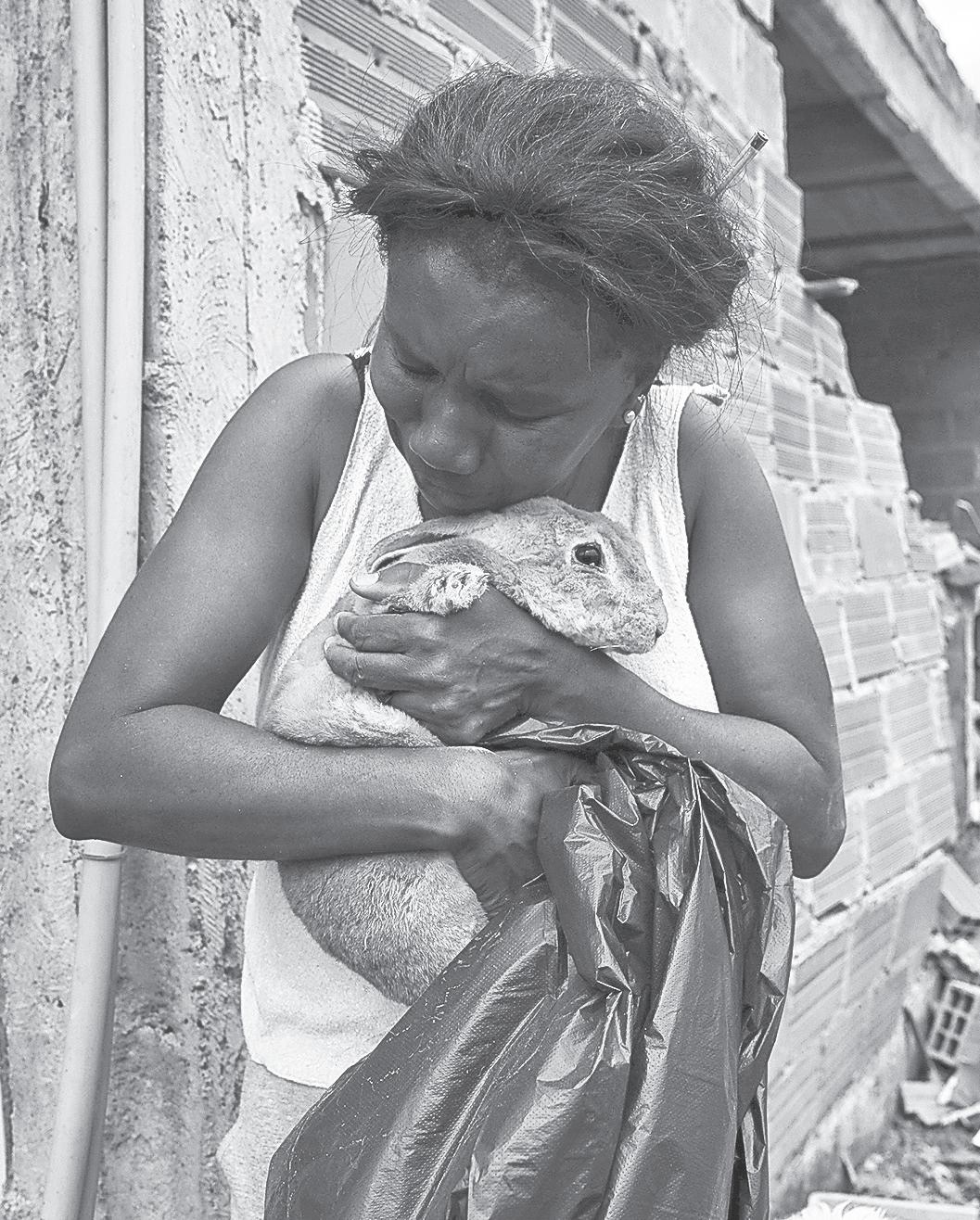

When Sebas Bastian walked into the PLP Candidates Committee this week, he did not come as a businessman looking to serve. He came as a man looking to claim space. A man who already has money, muscle, and the kind of influence that can bend the air in a room before he even speaks. Everyone knows Sebas does not move without purpose. Every donation, every community project, every handshake has been part of a long plan. For years he has played the role of benefactor, staying close enough to the fire to feel its heat but never stepping into the flame. This week he walked straight into it. And that is why Chester should be worried.
Chester Cooper once looked untouchable. Exuma was his kingdom. His loyalty to Brave was his shield. He was the man everyone quietly believed would one day lead the PLP. But politics has no sentiment. The minute Brave opened the door to Sebas, that comfort ended. Chester should be extremely worried about what comes next. For years he has been seen as Brave’s natural successor, the heir waiting for his moment. But Sebas
changes everything. The party’s financiers, the new generation of PLPs, and even some sitting members of Parliament are watching closely. They see in Sebas a man who can finance his own movement, command his own crowd, and speak with the authority of someone who owes no one anything. That is a dangerous mix for any would-be successor. If Chester loses momentum now, he may find himself in the same position as many before him, loyal, respected, and left behind.
Chester’s issue runs deeper than Sebas. He has never built a strong political base beyond Exuma according to many observers. His public image is polished but distant, and within the party, some quietly question whether he can truly connect with the grassroots the way Brave did. Many in the movement respect Chester’s intellect but do not feel his presence. He is seen as the professional face of the PLP, but not the soul of it. That gap leaves space for someone like Sebas, someone who can speak to the people in plain language, write the cheque, and turn up at the cookout. Politics in The Bahamas is not won by who is smartest. It is won
Sebas has what every politician dreams of but few can control. Money that talks, reach that multiplies, and charisma that connects. If he wins the Fort Charlotte nomination, he instantly becomes more than a candidate. He becomes a new center of gravity inside the PLP. Ministers will call him. MPs will flatter him. Supporters will follow his lead. He will not need to fight for relevance. It will come to him.
Brave knows exactly what he has done. He has reminded the entire party that no one is bigger than the man in charge. By letting Sebas in, Brave has placed everyone on notice, including his deputy. It is a classic move. The kind that splits loyalties, stirs ambition, and keeps everyone guessing who stands where.
Inside every room now, people are whispering the same question. Is Sebas the future? Can he be managed? Or has Brave just created a rival that even he cannot contain?
Chester knows the answer. He just will not say it out loud. Because when Sebas walked into that committee, the PLP’s next chapter began. And Brave, calm as ever, sat back and smiled.
Brave just said checkmate.
TRUTH
BAHAMIAN
October 9, 2025.
EDITOR, The Tribune.
THIS week, we observe two global moments that speak to the moral and emotional strength of our nation. World Mental Health Day is on October 10, under the auspices of the World Health Organisation, and the International Day of the Girl Child is on October 11, recognised by the United Nations.
Though distinct in purpose, these observances share a single truth: the well-being of our people and the empowerment of our girls are inseparable from the progress of our country. When our daughters are strong in mind and spirit, The Bahamas stands taller.
Regrettably, we are often reminded that too many among us are suffering in silence. I extend heartfelt condolences to the daughter and son who, on October 9, lost their mother to apparent suicide. Their loss, and the anguish of every family facing similar tragedy, must awaken in us a deeper sense of duty, to listen, intervene, and build systems that value every life.
Here at home, we must confront another painful reality, and that is the rising number of girls being abused by relatives, church leaders, and other trusted adults. These are not isolated stories; they are the symptom of a society that has looked away for too long. Abuse of power leaves lifelong scars, and the emotional wreckage it creates too often drives young people towards despair. We must also remember the little girl who watched her father gunned down in the street, and countless children who witness violence in their homes and neighbourhoods. Their nightmares are real; their innocence is stolen before its time. We must protect the minds and hearts of our children as fiercely as we protect our borders. As we mark World Mental Health Day, let us expand access to counselling, crisis intervention, and trauma-informed care in every school, clinic, and community. As we celebrate the International Day of the Girl Child, let us renew our vow to ensure
that every girl is safe, supported, and believed, that justice is not delayed, and dignity is not denied. We must break the silence surrounding mental illness once and for all. There is no shame in seeking help. The true shame lies in a society that refuses to provide it. Healing is not weakness; it is strength reclaimed.
These two observances remind us of a single, sacred duty: to build a Bahamas where mental wellness and gender equality are not privileges but promises kept. Now while this week spotlights our girls, we must not forget that good mental health belongs to all of us, men and women, boys and girls alike. Our daughters will only rise as high as our sons are strong in character, compassion, and resolve. When our men stand as allies, protecting, uplifting, and walking beside the women of this nation, then, and only then, will we build a Bahamas for all Bahamians.
SENATOR MAXINE SEYMOUR October 9, 2025.
from page one
quality of service. They have questioned our integrity. We have had a lot of issues. People write things on the internet all the time, others just believe something comes out of thin air and continuously forward it from all these anonymous sources.”
The online posts, which spread widely last week, accused Ms Smith, her sister Tammy, and their mother and owner, Connie Robinson, of running a “toxic” workplace where staff were underpaid, overworked, and mistreated. The unverified claims included allegations of unpaid long hours, lack of breaks, no payslips or overtime, and unsanitary conditions such as rats, leaks, and dirty bathrooms.
In response, the Department of Labour launched an inspection at the West Bay Street restaurant on Tuesday. Senior Deputy Director of Labour Patrenda RussellBrice said yesterday that the probe was ongoing but inspectors had not found anything that appeared “egregious.”
“I don’t think whatever the issues were to that point of being egregious, but whatever the situation may be, it’s a straightforward situation,” she said. “Nothing to the detriment of anything.”
Mrs Russell-Brice said the inspection team visited the restaurant during both the day and evening shifts to observe operations and interview staff. She added that no legal issues or breaches of labour laws had
been reported so far.
Ms Smith said inspectors met with staff and reviewed documents, including payroll slips. “We did everything right,” she said. “We pay our staff. I showed them what we had concerning everything, our payroll slips, and they interviewed all our staff, and I feel as though it went well because we confirmed what we were saying. We didn’t do anything wrong.”
She said the restaurant maintains set shifts from 7am to 3pm and 3pm to 11pm and has always operated professionally throughout its nearly three decades in business.
“We don’t sit here and argue and fight with each other or anything like that,” Ms Smith said. “We’ve been in business for about 27, almost 30 years, so we still have a level of professionalism when it comes to dealing with our customers and also our staff.”
The final report from the Department of Labour is expected in the coming weeks, though Mrs RussellBrice said there is no fixed deadline.
Ms Smith said the anonymous nature of the social media posts made it difficult for her family to respond publicly. “We as a family could not defend ourselves against that post,” she said. “We couldn’t argue it. We couldn’t go back and forth. There was no way we could have a back and forth or show what had happened or even dispute anything because it’s an anonymous post from an anonymous source.”
By PAVEL BAILEY Tribune Staff Reporter pbailey@tribunemedia.net
AS lawyers wrapped up their cases in a gang rape trial yesterday, a defence attorney argued that the absence of his client’s DNA in a condom collected from the scene exonerates him, while prosecutors insisted the teenage victim identified him as one of her attackers. Cleveland McPhee is on trial for unlawful sexual intercourse, accused of raping, together with another man, a 14-year-old girl in a half-finished building on Wulff Road on the night of June 25, 2018.
During closing submissions, McPhee’s attorney, Nathan Smith, told jurors that the charge was merely an “allegation” and said the forensic evidence did not support the prosecution’s case. He claimed that forensic biologist Gale Brennen was reluctant to read the results of a DNA test because the absence of McPhee’s DNA in a condom recovered from the scene cleared his client.
Mr Smith also criticised the police investigation, describing it as inadequate, and pointed to inconsistencies in the complainant’s account. He told the jury that the girl initially told police she did not know any of her attackers, yet later testified that she recognised McPhee.
Ms Ferguson recounted how the girl told investigators she sought shelter from rain in the unfinished building, where she was accosted by seven men. The complainant said she knew two of the men by face and one by name, identifying McPhee, whom she knew as “CJ,” as the first to rape her.
The girl testified that she recognised McPhee because she had previously dated his younger brother, Brandon. She said she spoke with McPhee for several minutes before being dragged into a storeroom by the men, where she tried to defend herself with a pole and bit one of her attackers before being bitten in return.
Ms Ferguson told the court that medical evidence corroborated the girl’s account. A doctor who examined her after the assault reported that she appeared frightened and had vaginal bruising, tenderness, abrasions, and a bite mark on her shoulder, consistent with traumatic sex.
The prosecutor also cited photographs showing footprints near the door of the building and a condom wrapper. She said the single condom collected from the scene was not linked to the defendant, but that did not undermine the complainant’s identification of him.
She said the police did their job, urging jurors to consider all the evidence together before returning a guilty verdict. Justice Jeannine WeechGomez presided over the trial. Tanisha Forbes served as co-prosecutor.
However, prosecutor Desiree Ferguson urged jurors to find McPhee guilty, saying the complainant’s testimony was truthful and supported by other evidence. She said 14 witnesses were called during the trial and that the police investigation was properly conducted.
By PAVEL BAILEY Tribune Staff Reporter pbailey@tribunemedia.net
A 41-YEAR-OLD father has admitted to physically abusing his 10-year-old son in New Providence.
Prosecutors said the man assaulted the child on October 8, causing unnecessary injury. They said that the father beat the child with a metal rod after he got bad grades.
Prosecuters added that police were called after teachers noticed the child
had difficulties sitting down. They noted he had bruises about the body
His name is being withheld to protect the identity of the minor. The father pleaded guilty to a charge of cruelty to children before Magistrate Abigail Farrington and expressed remorse for his actions. He is expected to return to court for sentencing today.
Assistant Superintendent of Police K Bould was the prosecutor.

NOT many know that US President Franklin Delano Roosevelt, an avid boater, was particularly fond of bone fishing in the Bahamas. While he was a sitting president, made all the more remarkable since he was wheelchair-bound from Polio, the US Navy had to escort FDR quite heavily during his Bahamas fishing outings. One of his favourite spots was Conception Island, suitably remote, and on the first week of April 1935 his exploits were followed in the press. They reported that the longestserving leader of the US was fishing for barracuda and bonefish, but that his luck was not going well on that trip.
Though doubtless other ships had wrecked there before, the Norwegian sailing schooner Knut Alfsson sank there in 1891. Built in 1877 and 292 tons, she grounded in the large ‘Bight’ of enclosed shallow waters formed by the cups of Crooked and Acklins islands. The fate of her people and cargo is not clear, but normally both would be taken off by wreckers hovering in the deep-sea channels. One of the larger steam ships to run aground on Conception, which vessels needs to pass clear of when entering Bahamian waters from the open North Atlantic, was the Simonside of 3,033 tons. In 1912 – the same year as Titanic sank– she hit the reefs of
By Eric Wiberg
Conception, ran aground, and was wrecked. Built in 1896, the British steam ship grounded on November 22 en route from Southampton and Capera, presumably in Cuba. Her master was Captain Turnbull, and he arranged for a nearby German ship to send out an SOS. The vessel had costs its owners 24,000 British Pounds. In the calamity the Chief Engineer drowned; it is not recorded whether he was buried on Conception. Then, in 1978, a motor vessel named Palmetta foundered in the deep waters between Conception and Cat Island. Built in 1957, this diesel-powered Panamanian cargo ship was 386 tons burthen. Five years earlier and at the same general location the same fate befell the San Jose, also Panamanian flag, but only 26 tons.
On February 6, 1813, Conception claimed the naval ship USS Vixen, a naval brig, and its recent captor. There is more to the story, as the narrative relates how “USS Vixen was captured by the HMS Southampton of the UK

after a chase of nine hours: both vessels were afterwards totally lost on the island of Conception, but the crews were saved”. The British brig HMS Rhodian and privateers Caledonia and Rolla went to the rescue, plucking friend and foe during the War of 1812 alike out of the roiling surf. The survivors were carried to Nassau.
In September in the 1900s, fruit ship John Wilson, an American steamer, was driven ashore at Conception in a hurricane. Fortunately they were able to claw their way off, and managed to continue south through The Bahamas to Jamaica. There they embarked many labourers for contract work on the banana plantations in Nicaragua, as the ship was owned by the United Fruit Company.
Further south, at Crooked Island, also in the windward Bahamian islands, we learn how it is not surprising that alleged shipwrecks in The Bahamas don’t all stand up to scrutiny. This is because of the fluid environment in which
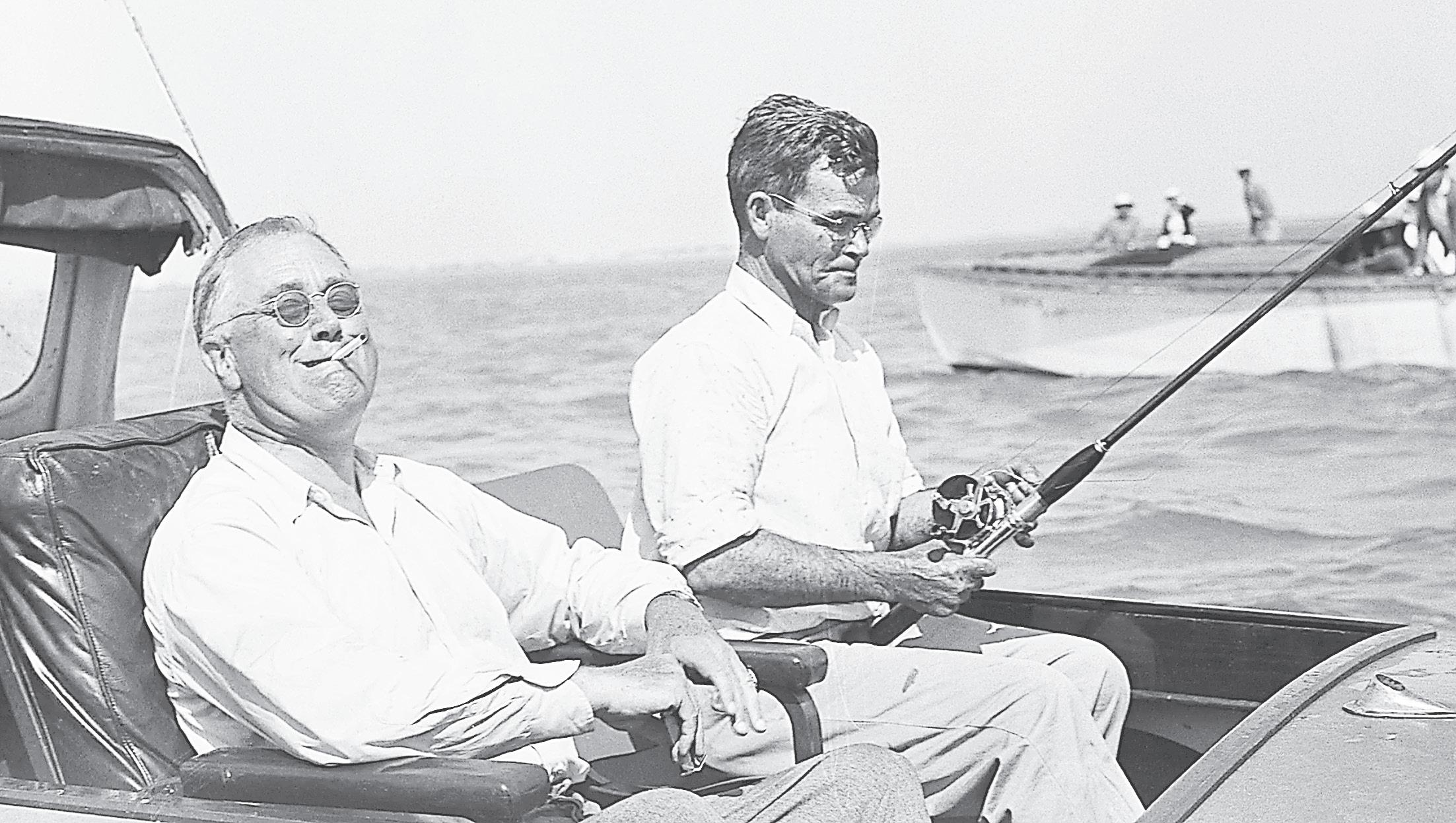

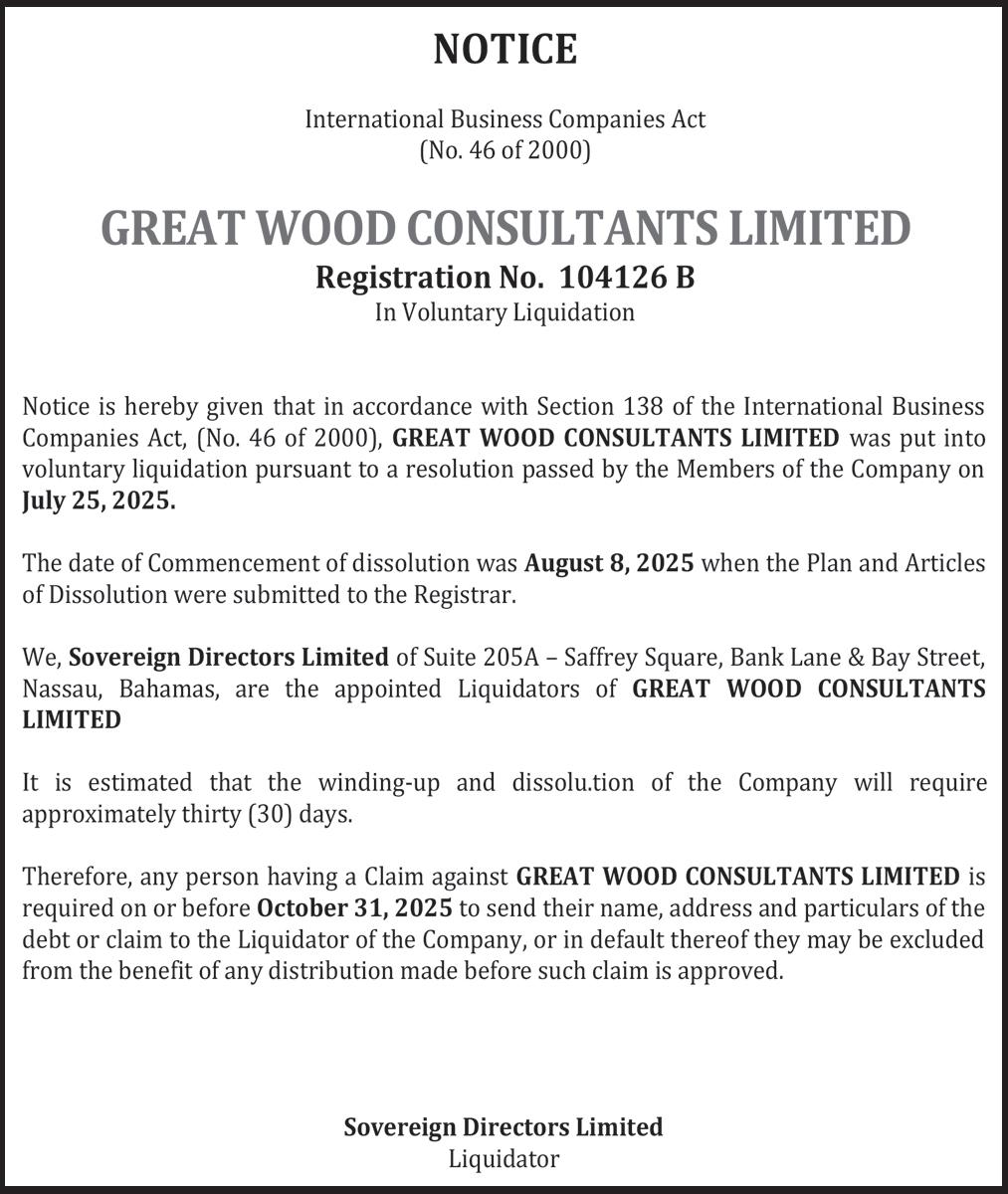
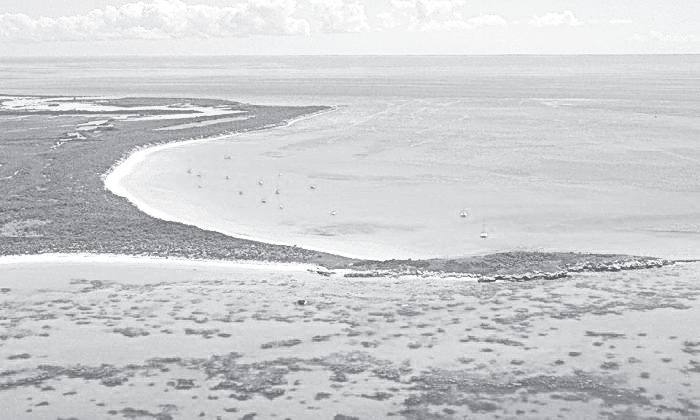
ships run aground yet can pull themselves off, or are abandoned and taken over by wreckers, who can even rebuild and rename them, and ships which go missing, sink, splinter into pieces and have no survivors to tell what happen.
Take for example a USflagged barquentine named Mohawk. By several news reports in which she is cited and marketed by brokers, we learn that she was 420 tons, sailed from at least 1817 between New York, Baltimore, Liverpool, and France, and one of her owners appears to have been of the famous whaleship and department store clan: Mr JP Macy of Nantucket. If it’s the same ship, we learn it may have been named Nimmo and sold in 1863 to a Mr M Bartlett (Wiki). This ship is featured in reports for a rescue, which can be verified, and a shipwreck at Crooked Island which cannot be. In fact, the records refute it inasmuch it was to have crashed in Bahamas in 1817 (Wiki) but is known to have sailed to Europe the following year.
To start with, another ship named Richard and Margaret “was abandoned in the Atlantic Ocean… on a voyage from New York to Bristol, UK… Her crew were rescued by Mohawk (United States).” (”The Marine List,” Lloyd’s List, 11 February 1817).
Reports read that “the ship was wrecked on Crooked

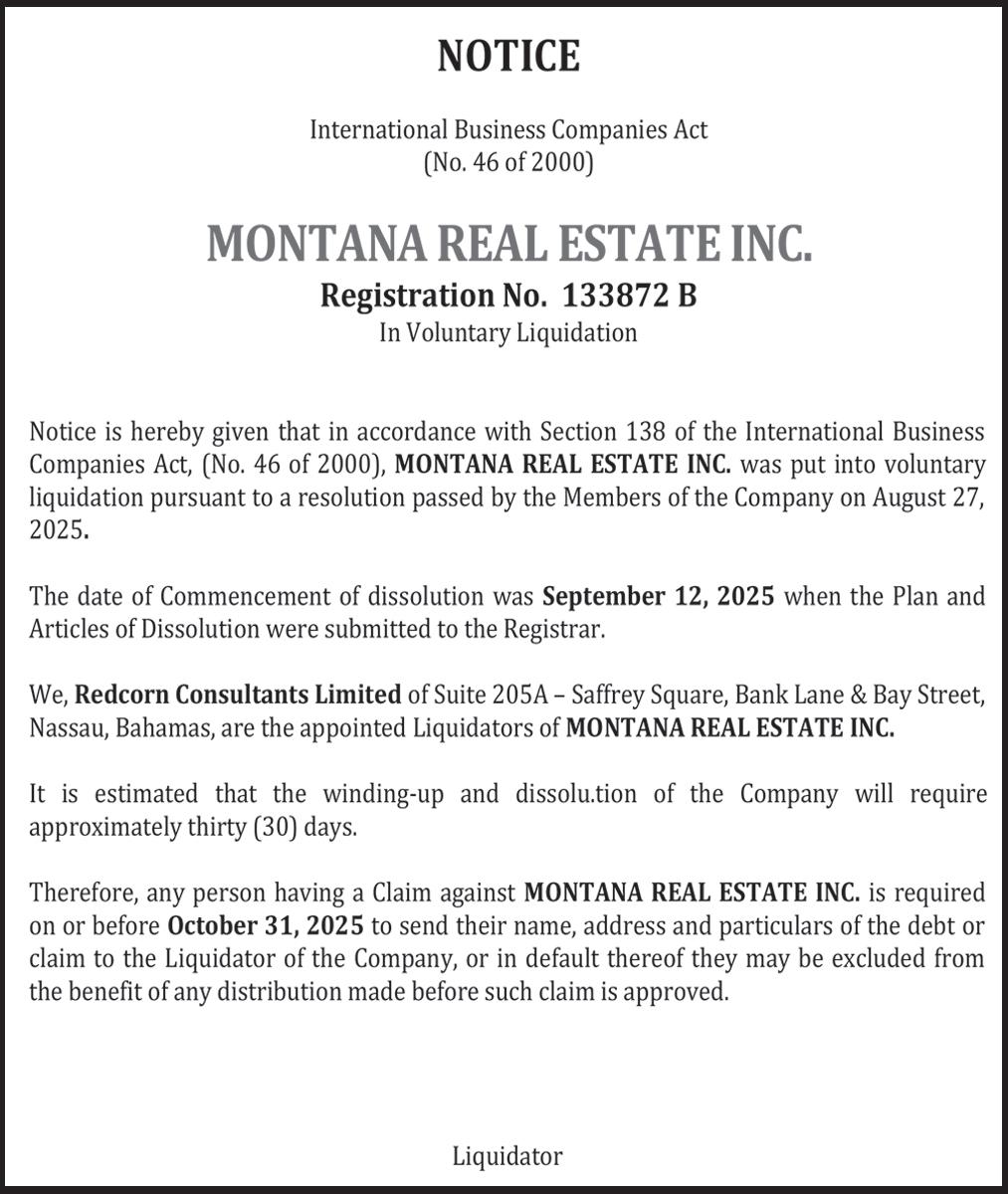
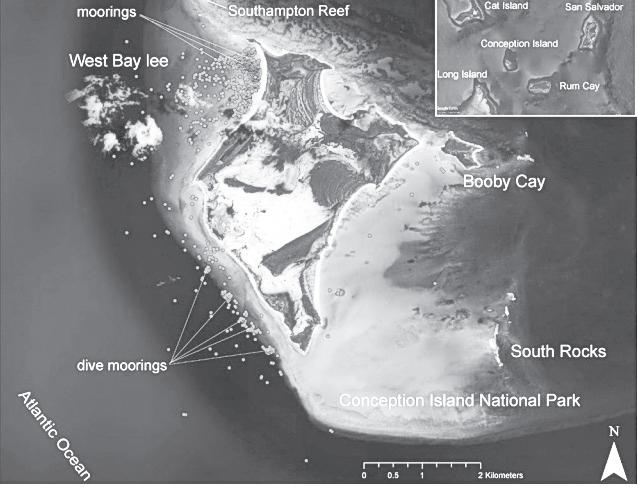
Island, Bahamas. Her crew were rescued.”
But, although Lloyds Marine List and Wiki show that the same year Mohawk was on a voyage from New York to Port-au-Prince (Nov 7, 1817), she sailed to Europe from New York in December of 1817 and was spotted at sea well east of Bahamas at the end of 1817, so could not have wrecked there then. She brought high quality cattle of the Teeswater and Holderness breeds for Kentucky and is described as “a good vessel, stows a large cargo for her tonnage”, under the command of Captain Robert Waterman. In Liverpool, she stayed at Queens’ Dock and her brokers were Copper, Benson & Co, touting her voyage to New York in March 1817. So, either this is a case of mistaken ship identity, or the
ship grounded in Bahamas on its way from Liverpool to Baltimore, and managed to free itself. After all, on April 8, 1817, the Mohawk arrived in New York City from Baltimore. During her trans-Atlantic voyage, “Richard and Margaret foundered at sea; the crew picked up and carried into Liverpool by the ship Mohawk”. In December of 1817 she was reported en route from New York for Bordeaux France, so she survived into 1818 until meeting its demise at Crooked Island. So, like treasure hunters going after phantom Spanish galleons at Lobos or Guinchos, they would be advised against looking too intently for the bones of Mohawk at Crooked. It seems like the people from Richard and Margaret, they managed to break free.
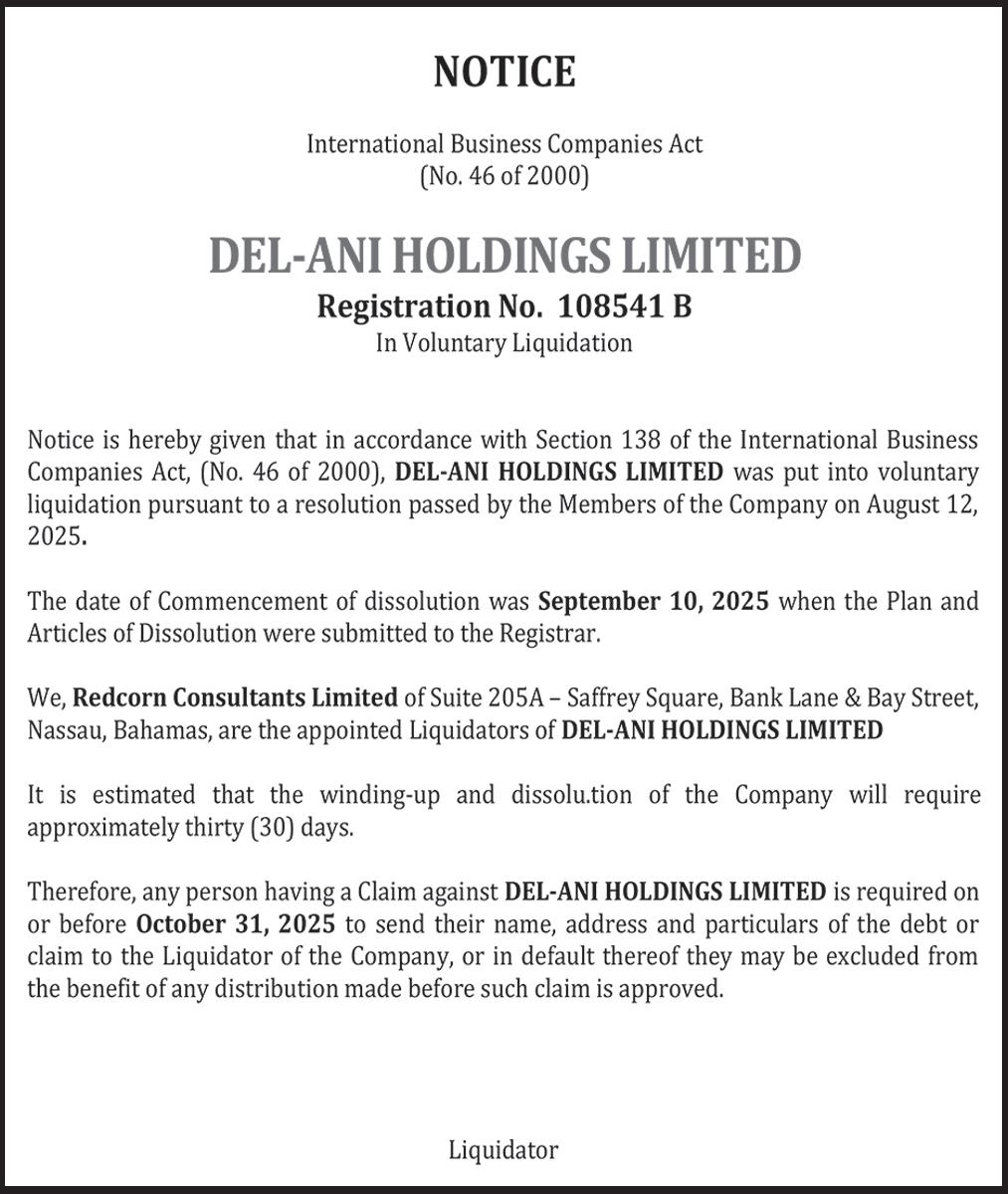
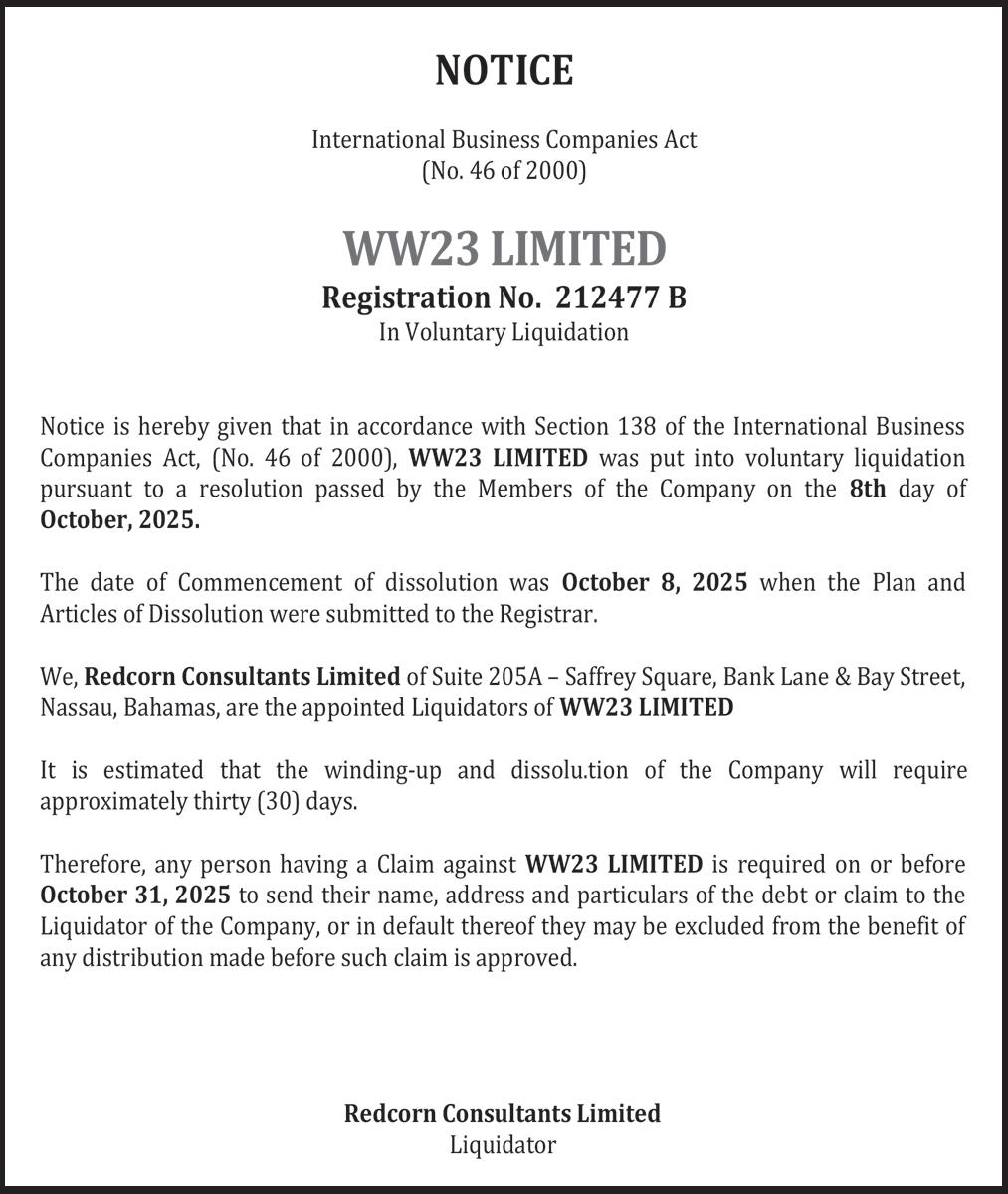
A white woman’s look at life in Fox Hill Prison as told by the mother who would do it all over again
BARBARA Murphy
runs. These days, she sports an extra piece of apparel as she sets off, pacing herself, going slowly at first, building up speed, one smooth movement after another, trying to find that zone that runners live for where all is right with the world.
Murphy’s new wearable is an ankle bracelet, a gift from the judicial system of The Bahamas that let her trade the electronic monitor for the heavy steel bars where she had been held in Remand at Fox Hill Prison for five months. Her crime, according to the charge - kidnapping her son, Valentin, now 11.
Murphy says she did it to save him from a very bad situation in Switzerland and as rough as life in Fox Hill Prison was for a woman clearly accustomed to the finer things in life, she says she would do it all over again.
“Never for a moment did I think I shouldn’t have done that,” she says. “I can sleep easily at night except I miss my son so much.”
American-born Murphy who lived and worked in financial services in Switzerland and London is not here today to discuss the past. We have agreed to meet for coffee. She wants to talk about the book she wrote about her experience in Fox Hill, a prison that chews up first offenders and spits them out as hardened criminals.
The men’s cell blocks have been described as living hells. Slop buckets, rats, roaches, gangs, sexual abuse, the ceaseless noise and yelling and threats. Overcrowding is so extensive that 1400 inmates squish into the 75-year-old buildings designed for a maximum of far less.
The women’s prison, broken into Remand and Cell Block is only slightly better because it is less crowded.
Murphy, as I said, wants to talk about the book. And I want to read it, but it’s hard not to stare at the ankle jewellery because I rarely share coffee with someone on bail.
The bandage-like wrapping around the monitor, says Murphy, a seasoned marathon runner, draws different reactions.
“Visitors or foreigners look at me with sympathy and ask, ‘What happened? How did you hurt yourself?’ Locals look and they just nod. They know,” she says.
Ankle jewellery has become so commonplace in The Bahamas it hardly warrants a second glance. But everything about Murphy is in stark contrast to others in the category of the remanded, those out on bail awaiting trial. A recent report from the Office of the Prime Minister cites 178 young men out on bail for murder being monitored. Another says nearly half of last year’s murder victims were on bail themselves for homicide.
But, as I said, everything about Murphy’s case is in stark contrast to the natural response to the image of criminal, even her ability to tell the story from the perspective of the accused, as she does in the book we are here to discuss, Angels of Paradise (available at Logos Bookstore, Harbour Bay or on Amazon).
Honest, disturbing tale
Angels of Paradise is an honest, disturbing tale of life behind bars as told by a white woman who must make her way in a world in which she was dropped and could never have been prepared for.
In lively, often vivid dialogue peppered with adjectives and verbs you would never want your child to use, she details the day-to-day sense of despair, the anger of others, the aloneness she feels, the sympathy and distrust. There is no holding back. It is not just
By Diane Phillips
the physical conditions of Fox Hill Prison that are chilling, but what life without purpose and a sense of abandonment does to the soul.
Murphy’s ability to tell the story is not surprising. Her first book, Confessions of a City Girl, made the bestseller list. She is a former columnist for a London newspaper and a copy writer with an impressive resume. Writing about her experience, telling a tale while it was raw and fresh, describing the sadness and the slow-forming sisterhood while awaiting trial was natural for her.
“What happens when you put 20 people in the same room day after day with nowhere to go and no way out is you either fight or you find some way to bond,” she says. “We were all in the same boat and eventually we overcame the cultural differences.”
Accused of racism
It did not happen quickly or without strife. Murphy was frequently accused of racism though she vehemently denied it, at one point levelling with the women, telling them what she hated about the native culture (too much emphasis on violence) and what she loved, respected and awed (dance, music, warmth, hospitality, rituals, even the ability to move different parts of the body separately to a rhythm).
But the more she shared the fresh fruit, nuts and wholesome home-cooked food that her fiancé, Ian Goodfellow, brought for her, the more the women in prison seemed to dislike her, the more apart she felt.
The fact that someone cared enough to cook and deliver food only seemed to emphasize the gap between the other inmates’ world and hers.
“Ian visited me 72 times while I was in Fox Hill,” she says, “I would have starved if it hadn’t been for him, and he would bring enough for me to share plus little things the prison needed. There are so many needs…”
Still, she would wake in the morning and the Tupperware container of nuts that had been full when she fell asleep was nearly empty when she awoke. There were a few attempts by women to rub up against her, but she stood her ground firmly with the same steely reserve she presumably learned as she, in her mind, was doing all she could to protect her son in Switzerland where, depending on where you lived, women’s and children’s rights were up to 50 years behind. In some places, women were only granted the ability to vote in the 1970s and in some areas, the practice did not become reality until 1996.
Resentment overload
At 5ft 2in, blonde, weight less than 130lb and a fresh face that looks more like the young mom on a box of cereal than the 42 years of age she is, Murphy could have been instant prey for women desperate for some sort of sexual satisfaction. Instead, she became the butt of their insults, the face of all they resented in the world – someone, even behind bars like they were who had it better and would always have it better than they did. Murphy’s case is before the courts. This column will not deal with that other than to say that I had the occasion, as a writer, to interact with Murphy and her son, Valentin, prior to her arrest when I had no idea what had brought her to The Bahamas and what lay in the shadows
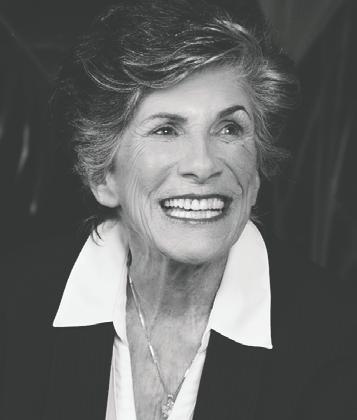
of their lives and I found the love between them something to behold.
They both played piano and violin. She had made his favourite Saturday morning pancakes and they were about to leave for some sports event he was participating in.
I’ve forgotten what it was, maybe soccer, but he was as happy a ten-year-old as I had ever met and I marvelled at the relationship even though I had gone to the home to tell Murphy that I was unable to do something she had requested related to writing, delivering bad news in person to be polite.
The next thing I knew her name was in the headlines, something to do with a bid to have her extradited. Next, I read that she had used her skills wisely, to tell the story of hopelessness in a place where the greatest gift the judicial system could give the women in Fox Hill Prison is a reason to believe they have a chance to build a future, to create a life different from the one they left behind, a reason to hope.
“I wrote Angels of Paradise to give a voice to the Black Bahamian women who just want a chance to start over,” she says. “All they want is to break the cycle of crime. They don’t know how. Many of them are in for a one-time crime, one mistake they made, like the five girls who were charged with manslaughter when one girl did the killing but they all went out afterward and were seen to be drinking and laughing so they all got charged and now they are paying the price with their lives for one moment, one mistake.”
But unlike Murphy, who had been earning six figures in financial services in London and Switzerland in an earlier chapter of her life, the women in remand or a cell block at Fox Hill did not have a record of professional success behind them. They had a record, but not the kind that would get them a good job when they finally made bail or served their sentence.
Similarities and sisterhood
There were similarities. They had their ups and downs, though few cried every day like Murphy did. They had medical issues, though theirs were different from the malady that grew worse while Murphy was behind bars. They all had Bibles and loved it when the church ladies came to visitthey could leave their cells and march across the courtyard to attend church. They all watched movies, though Murphy once lost her composure and screamed at the entire group, sick of listening to the loud movies filled with violence, sexual assault, abuse, stories of drugs and guns.
The women in remand saw a different side to this white woman that day and they listened. They turned on something juvenile and silly and with a moral to the story and together, they all laughed and cried and bonded. There were other moments – the readying someone for release when everyone helped fix up an inmate to greet whoever would be waiting outside, the preparations for Junkanoo, the cheering when someone got bail, the lesson her one friend, a woman named Vera, taught her.
Even in darkness, there is room for hope.
“Maybe God put me in here,” she told herself, “to tell the story of these girls and how what they need most of all is hope.”
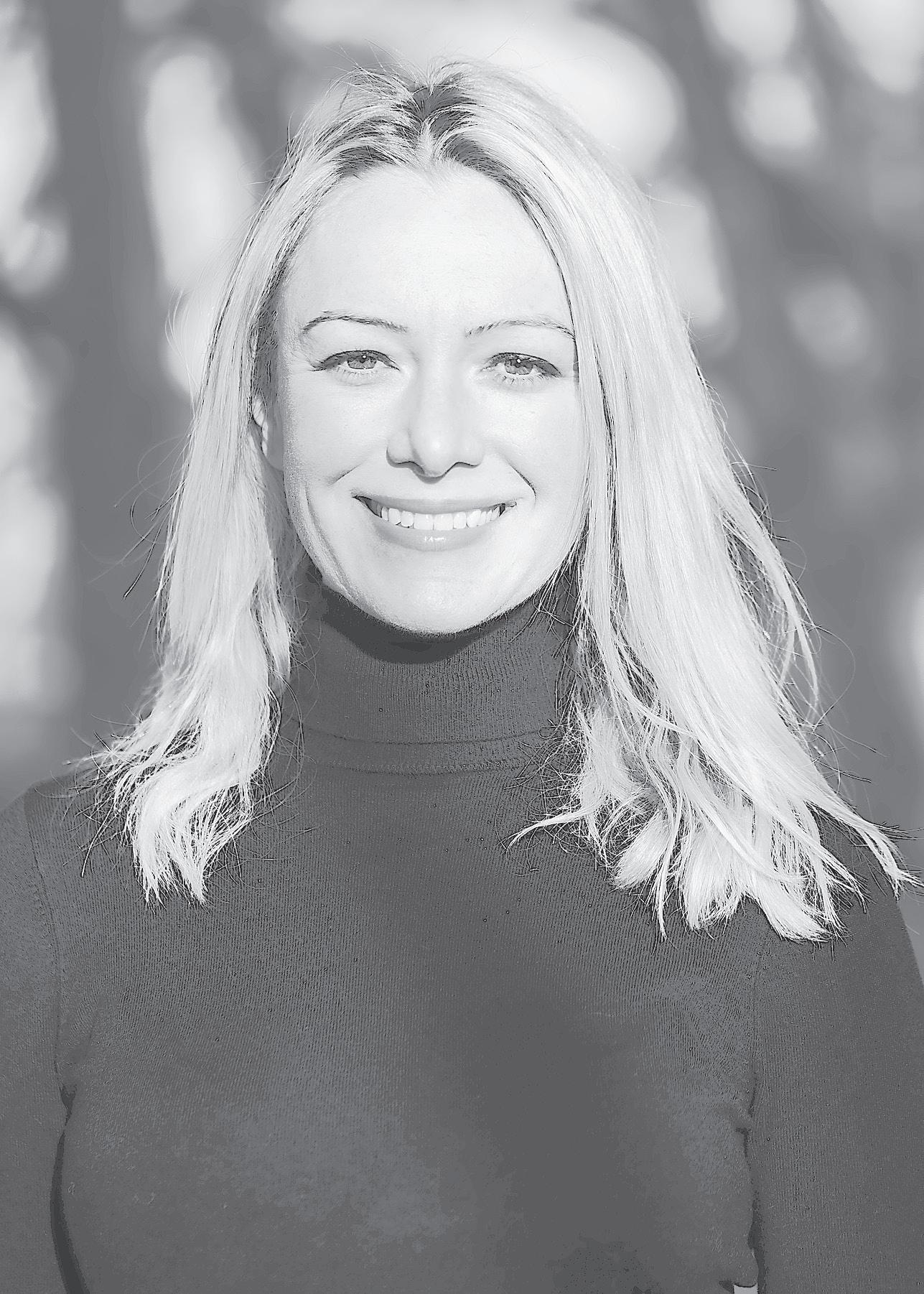

TUESDAY, 14 OCTOBER
POPE Leo XIV criticized how the wealthy live in a “bubble of comfort and luxury” while poor people suffer on the margins, confirming in his first teaching document that he is in perfect lockstep with his predecessor Pope Francis on matters of social and economic injustice.
The Vatican on Thursday released the document, entitled “I have loved you,” which Francis had begun to write in his final months but never finished. Leo, who was elected in May, credited Francis with the text, cited him repeatedly, but said he had made the document his own and signed it.
The 100-page document traces the history of Christianity’s constant concern for poor people, from Biblical citations and the teaching of church fathers to the preaching of recent popes about caring for migrants, prisoners and victims of human trafficking.
Leo credits especially women’s religious orders with carrying out God’s mandate to care for the sick, feed the poor and welcome the stranger, and also praised lay-led popular movements advocating for land, housing and work for the society’s most disadvantaged.
The conclusion Leo draws is that the Catholic
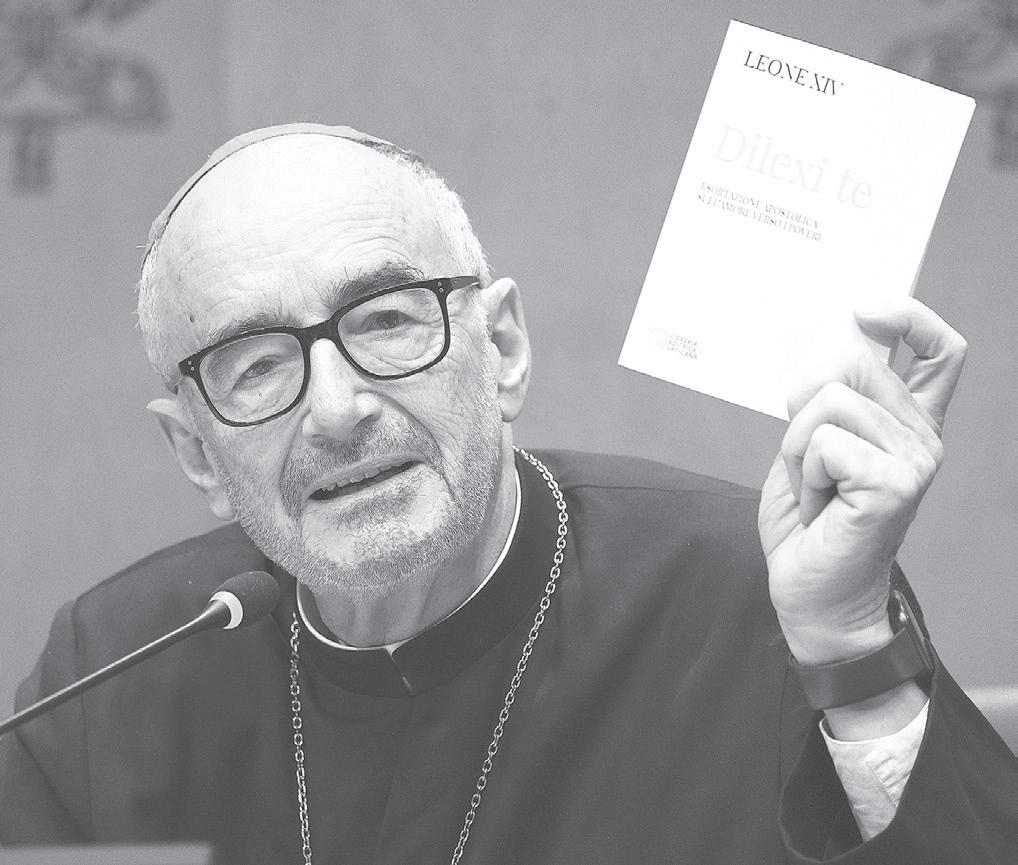
CARDINAL Michael Czerny attends a press conference at the Vatican to present Pope Leo XIV’s exhortation “Dilexi te”about love for the poor, yesterday.
Church’s “preferential option for the poor” has existed from the start, is non-negotiable and is the very essence of what it means to be Christian. He calls for a renewed commitment to fixing the structural causes of poverty, while providing unquestioning charity to those who need it.
“When the church kneels beside a leper, a malnourished child or an anonymous dying person, she fulfills her deepest vocation: to love the Lord where he is most disfigured,” Leo writes.
Citing Francis, a critique of the wealthy Leo cites Francis frequently, including in some of the Argentine pope’s
Photo: Domenico Stinellis/AP
most-quoted talking points about the global “economy that kills” and criticism of trickle down economics. Francis made those points from the very start of his pontificate in 2013, saying he wanted a “church that is poor and for the poor.”
“God has a special place in his heart for those who are discriminated against and oppressed, and he asks us, his church, to make a decisive and radical choice in favour of the weakest,” Leo writes.
Echoing Francis, Leo rails against the “illusion of happiness” derived from accumulating wealth. “Thus, in a world where the poor are increasingly numerous, we paradoxically see the
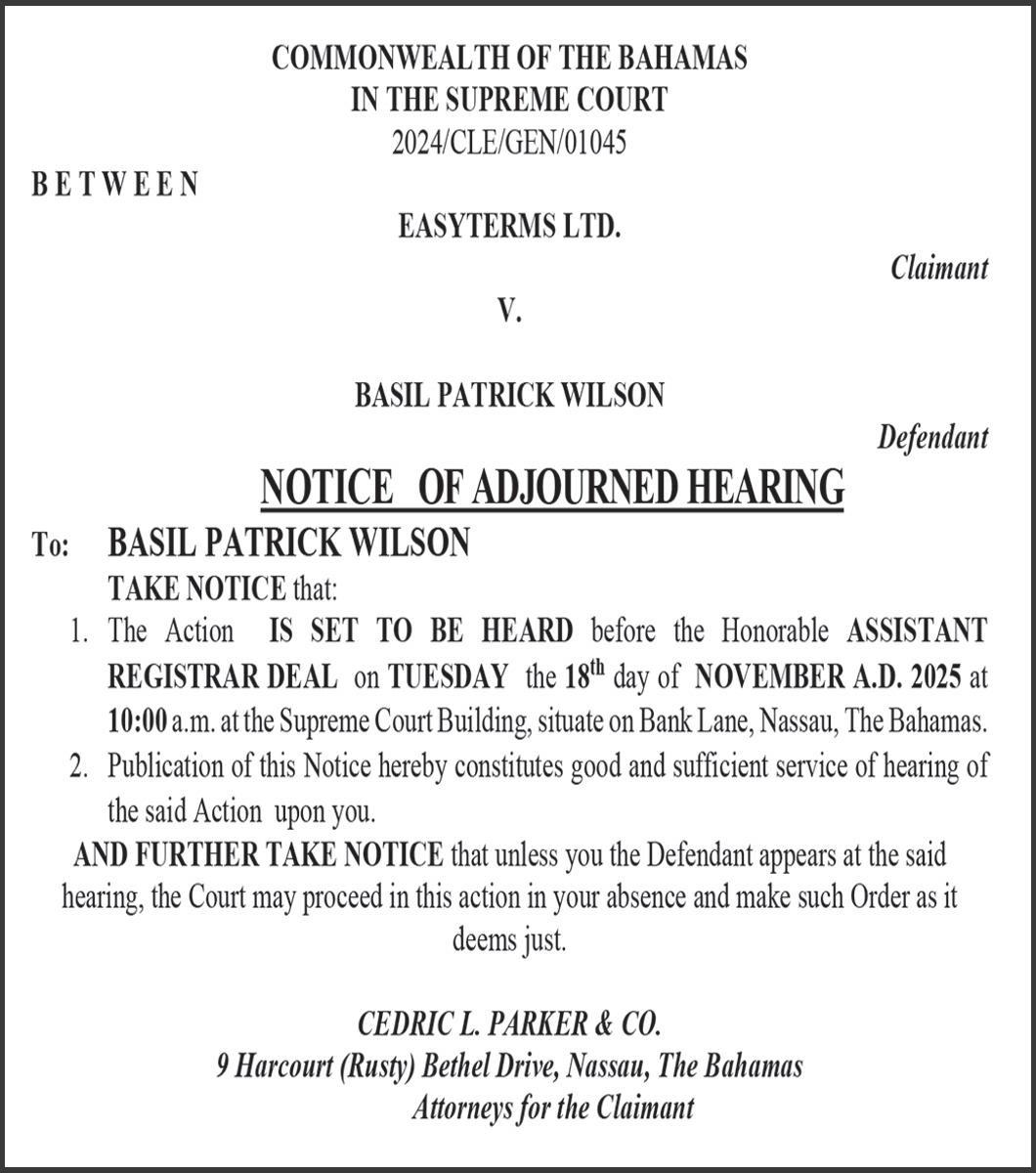
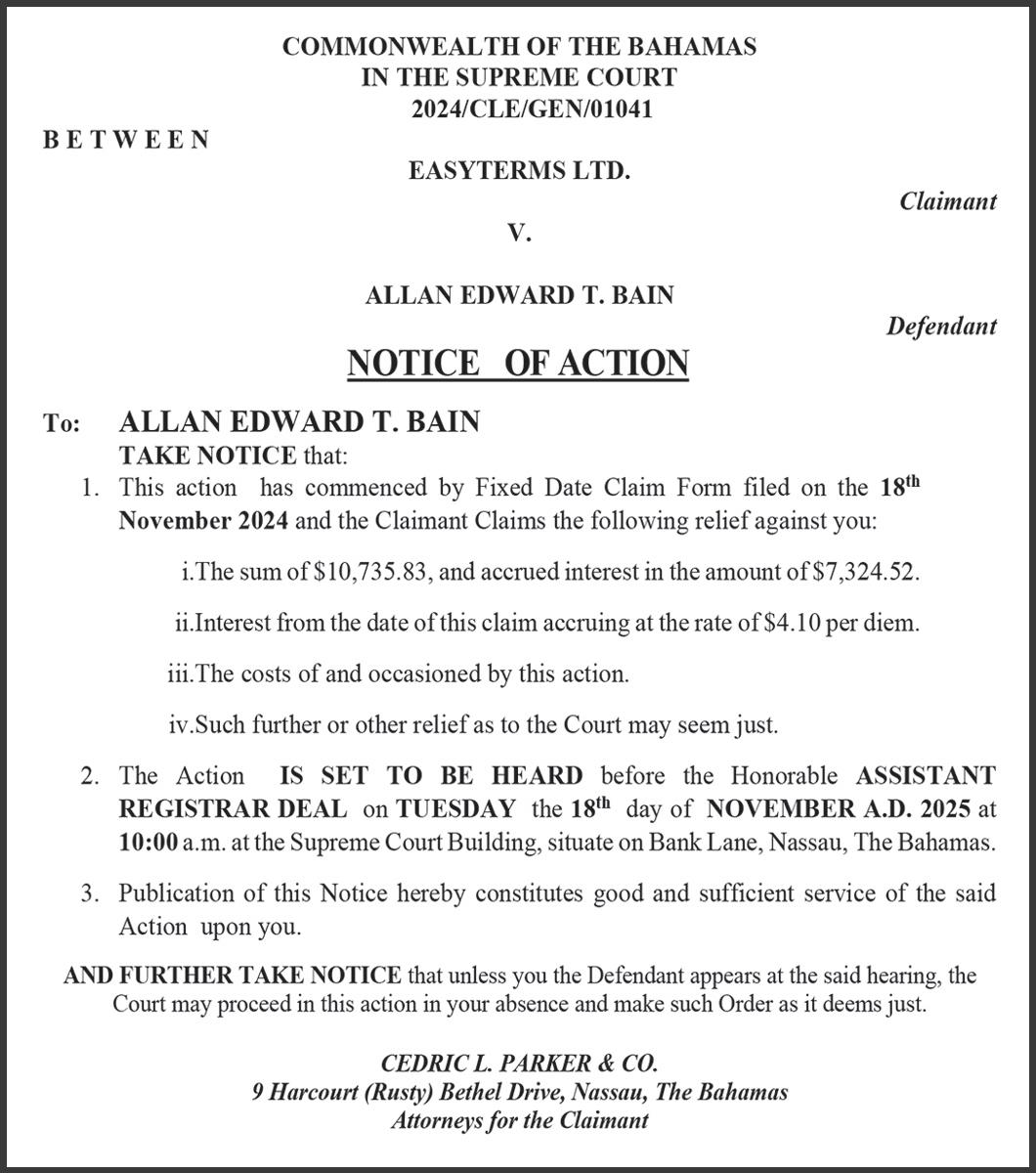
growth of a wealthy elite, living in a bubble of comfort and luxury, almost in another world compared to ordinary people.”
Francis’ frequent criticism of capitalism angered many conservative and wealthy Catholics, especially in the United States, who accused the Argentine Jesuit of being a Marxist.
In a recent interview, Leo said such misdirected criticism cannot be levelled against him. “The fact that I am American means, among other things, people can’t say, like they did about Francis, ‘he doesn’t understand the United States, he just doesn’t see what’s going on,’” Leo told Crux, a Catholic site.
As a result, Leo’s embrace of Francis’ teaching on poverty and the church’s obligation to care for the weakest is a significant reaffirmation, especially in Leo’s first teaching document. Francis’ spirit in text and launch
Vatican officials insisted that the text was fully Leo’s and declined to say how much Francis had written before he died.
“It’s 100% Francis and it’s 100% Leo,” said Cardinal Michael Czerny, who runs the Vatican’s development and migrants office and was a top Francis aide. Asked if the same conservatives who labelled Francis a
Marxist or Communist will now accuse Leo of the same, Czerny noted that both are merely following the Gospel.
Such labels “say much more about the person who is using the label,” Czerny said. “The problem is not Pope Francis’ or Pope Leo’s. The problem is the person,” using such labels to reject the church’s teaching.
Francis’ spirit was very much infused in the document and in its official presentation on Thursday.
In addition to Czerny, the news conference featured a rare appearance by Cardinal Konrad Krajewski, the Polish prelate whom Francis entrusted with carrying out his personal acts of charity over the course of his pontificate. Under Krajewski’s quiet eye, the Vatican installed showers for homeless people off St. Peter’s Square, provided COVID-19 vaccines for 6,000 migrants and people without access to Italy’s health service, sent ambulances with medicine to Ukraine and hosted weekly luncheons for the hungry.
Krajewski said the document was proof that such gestures of charity toward the needy come straight from the Bible, recalling that Jesus didn’t work 9-5 in an office, but rather went out and looked for people who needed him.
Krajewski regaled reporters with anecdotes of his behind-the-scenes
dealings with Francis, who would jokingly reprimand him if his bank account had too much money in it because it meant he hadn’t spent enough on poor people.
Signed on the feast of St Francis
Leo signed the text on Oct. 4, the feast of St. Francis of Assisi, the 13thcentury mendicant friar who renounced his wealth to live poor among the poor. The date was not coincidental.
The late Pope Francis named himself after the saint and one of the pontiff’s most important documents — “Fratelli Tutti” (Brothers All) — was itself published on the Oct. 4 feast day in 2020. Leo, too, seems inspired by the saint’s example: As a young priest, the former Robert Prevost left the comforts of home to work as a missionary in Peru as a member of the Augustinian religious order, one of the other ancient mendicant orders that considers community, the sharing of communal property and service to others as central tenets of its spirituality.
“The fact that some dismiss or ridicule charitable works, as if they were an obsession on the part of a few and not the burning heart of the church’s mission, convinces me of the need to go back and reread the Gospel, lest we risk replacing it with the wisdom of this world,” Leo writes.

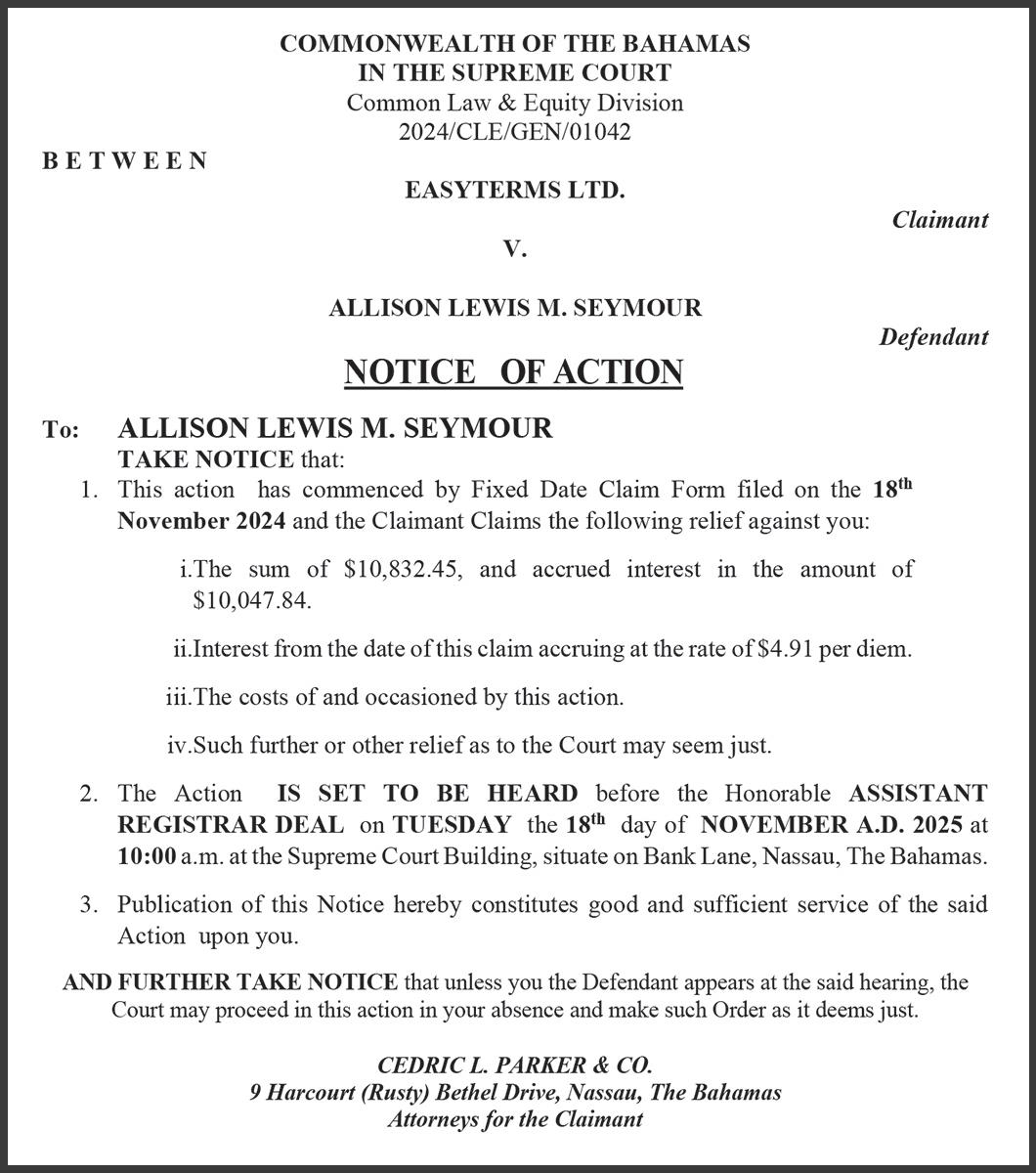

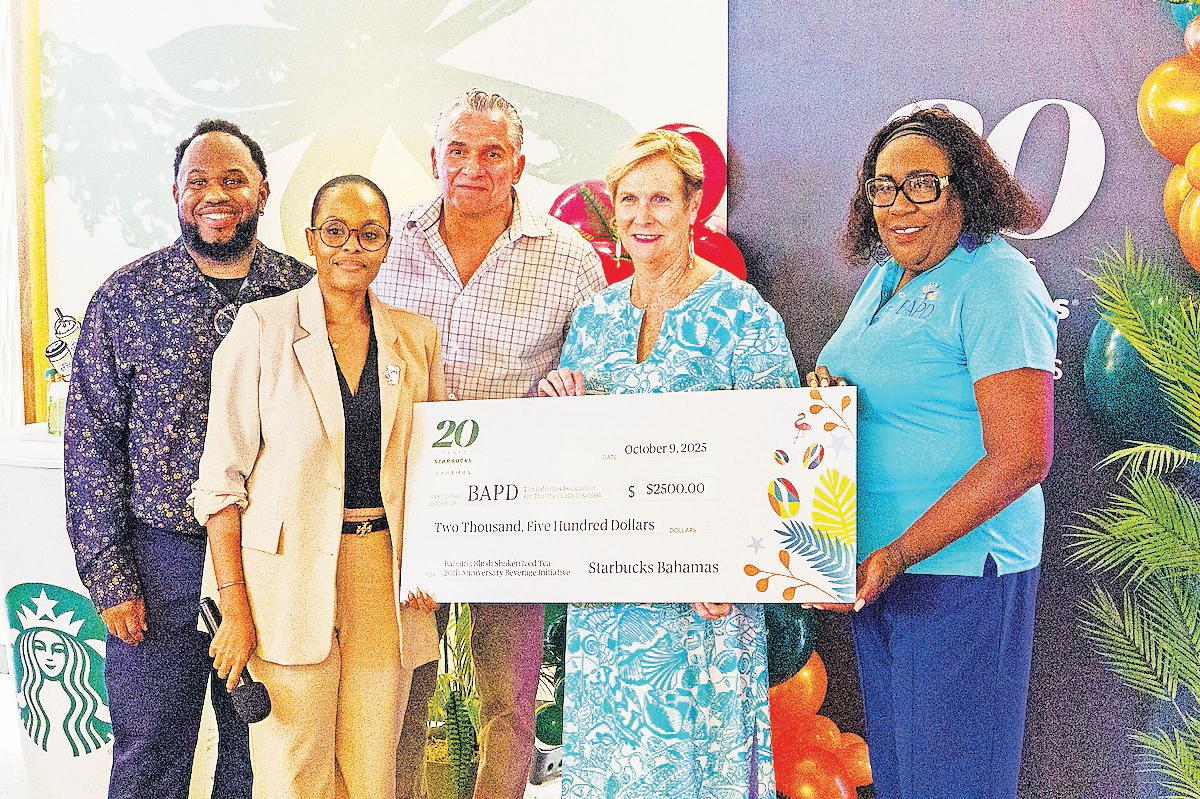

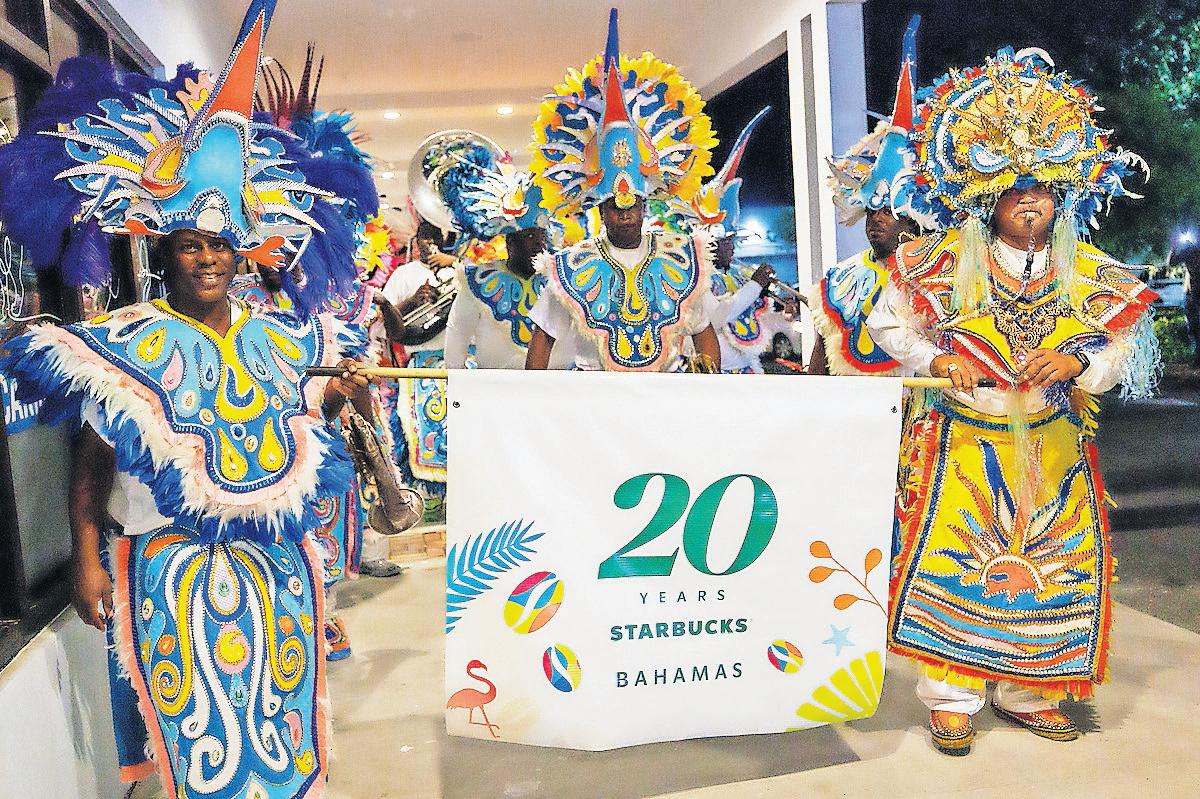
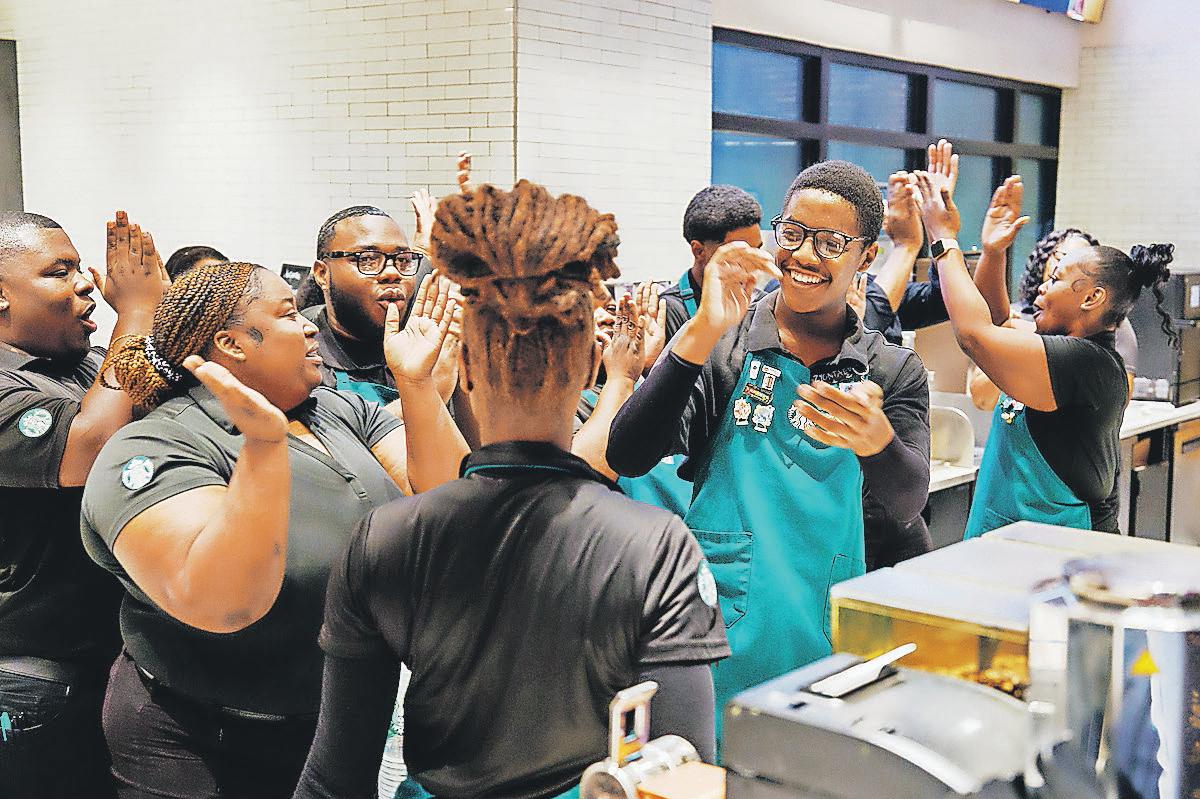
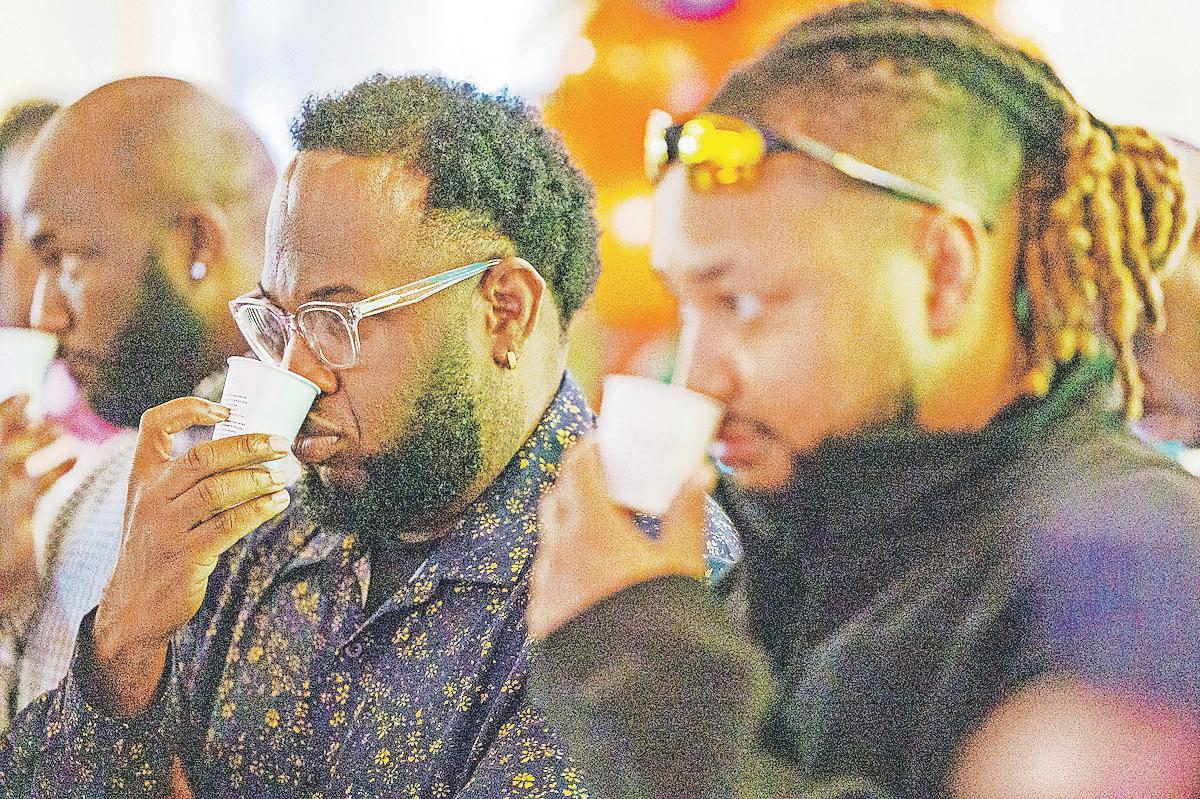
THE University of The Bahamas (UB) is preparing for what officials describe as a significant milestone in its accreditation journey, with the Southern Association of Colleges and Schools Commission on Colleges (SACSCOC) set to visit the institution during the week of November 10, 2025.
UB President Dr Robert Blaine, III, announced the development during a special meeting with faculty, staff, and students at UB’s Oakes Field and UB North campuses on Wednesday. The date of the visit coincides with the university’s charter anniversary, marking what he called a moment of “celebration and reflection.”
“This upcoming site visit is a significant milestone in our journey toward international accreditation,” Dr Blaine said, according to a UB press statement. “It also serves as a powerful
‘Teen
affirmation of the hard and crucial work that our university community has done over many years. It reflects our collective belief in what UB stands for: knowledge, truth, integrity, and a shared commitment to transforming lives through higher learning.”
A SACSCOC site visit is a key part of the evaluation process to determine whether an institution meets the standards of quality and effectiveness required to become a candidate for accreditation. The visiting team, comprising peers in academia, will meet with students, faculty, staff, administrators, and trustees and will assess operations at both UB Oakes Field and UB North in Grand Bahama.
To lead preparations for the visit, Dr Blaine has appointed an Accreditation Champions Working Group made up of representatives
from across the university.
“They will help us with logistics, host our guests, and ensure that every part of our university, from governance, teaching, and learning to student life and services are represented with confidence and pride,” he said. “As we prepare to welcome the SACSCOC team, let’s come together to show the strength of our community and the values that ground our purpose and impact on nation-building.”
Accreditation has been a long-standing goal for UB, dating back to 2017 when the Office of Institutional Strengthening and Accreditation was established to advance institutional quality.
The upcoming visit follows public discussion about UB’s push for international accreditation. The issue has sparked debate within academic and public
By PAVEL BAILEY Tribune Staff Reporter pbailey@tribunemedia.net
A YOUTH used a tree branch to attack a fellow 15-year-old who had earlier assaulted him with a knife, a court heard yesterday.
circles, with some questioning whether the focus on SACSCOC recognition is the right path.
Former UB executive vice president Professor Ian Strachan has been among the critics, calling the pursuit “the most colonial thing” the university could
do, arguing that it prioritises foreign validation over developing local standards.
UB officials have rejected that view, saying international accreditation would strengthen the university’s reputation, improve student mobility, and open opportunities for collaboration and funding. Dr Blaine has described the process as one of continuous improvement and nationbuilding, emphasising that the university’s goal is to meet globally recognised standards without compromising its Bahamian identity.
The boys’ police bail was extended, and they were ordered to observe a 7pm to 8am curfew each day until trial, which is set to begin on November 20.
Mark Penn represented one of the accused. Sergeant 3004 Forbes prosecuted the matter.
Prosecutors allege that one of the teens attacked and injured the other with a knife on Apple Street, while the second boy is accused of retaliating with a tree branch on Verbena Street that same day. Both minors, whose names are being withheld because of their age, were charged with causing harm and assault with a dangerous instrument on September 25 before Senior Magistrate Algernon Allen Jr. They denied the charges when arraigned in the presence of their guardians and were granted bail.
